Central Banking Training - Chairs & Speakers
Chairs & Speakers
Central Banking Training Faculty
Central Banking looks throughout the central banking community for expert speakers and chairs to make up its faculty
Course Speakers
Specialists in their field of work, Central Banking’s speakers share their expert knowledge and global best practice

Lucia Alessi
Responsible for sustainable finance
European Commission - Joint Research Centre
Lucia Alessi is Responsible for Sustainable Finance at the Joint Research Centre of the European Commission. Her team develops research in support of EU policymaking on sustainable investments and ESG risks. Her more recent research focuses on the development of carbon stress tests and the assessment of ESG risks for banks, on the analysis of investors' attitude towards climate risk, and on the EU green Taxonomy. From 2007 to 2015 she worked at the European Central Bank, where she served in various areas, including Research, Economics, and Macroprudential Policy and Financial Stability.

Dr Settor Kwabla Amediku
Director of payment systems
Bank of Ghana
Dr Settor Kwabla Amediku is currently the Chairperson of the Association of African Central Banks (AACB) Payment Systems Integration Working Group and also Chairperson of the Financial Inclusion and Data Working Group of the Alliance for Financial Inclusion, an international body advancing inclusive finance. He is also the AACB member of the Advisory Board of the Africa Financial Industry Summit initiative. Settor consulted for United Nations/ World Trade Organisation (WTO) and International Trade Centre (ITC) Switzerland, on Financial Sector Development and Trade in Financial Services and Development and was also engaged by the International Monetary Fund (IMF) as a short term expert in 2018 . He reviewed and proposed measures for the development of the Liberian payment systems.
He has over 26 years of experience in central banking as an economist and accountant specialising in Monetary Policy, Financial Services and Payment Systems development, Banking operations, Banking Supervision and Financial Stability. In 2015, Settor set up the Payment Systems Department and also put in place all the structures including facilitation of the passage of the Electronic Money Issuers and Agent Guidelines as well as the Payment Systems and Services Act 2019 (Act987).
Settor has also been instrumental in the establishment of the Financial Stability Department of the Bank of Ghana and in addition introduced various metrics that continue to guide the Monetary Policy Committee on the assessment of the banking sector. He is a Fellow of Association of Chartered Certified Accountant, United Kingdom and a member of the Institute of Chartered Accountants (Ghana). Settor served on the Technical and Research Committee of the Institute for two terms and on the Professional Standards and Ethics Committee of the Institute for a year.
He was educated in Ghana and the United Kingdom and holds Master of Philosophy in Monetary Economics and Finance from the Glasgow University, Scotland with a joint award as the best student in Monetary Economics in 2004. He took his doctoral degree in Finance from the SMC University, Switzerland.
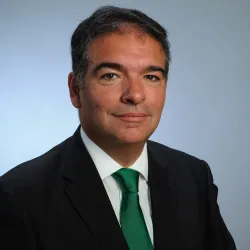
Gabriel Andrade
Head of the risk management department
Bank of Portugal
Gabriel Andrade is the head of the Risk Management Department at Banco de Portugal, which he has been responsible for since October 2014. He is currently the Chair of the Eurosystem Resilience Task Force He is also a member of the International Operational Risk Working Group (IORWG) and works regularly in technical assistance missions of the International Monetary Fund (IMF) to Central Banks. From 1987 to 2013, Mr. Andrade worked in the private banking sector, including 20 years with Barclays Bank. He holds an Economics degree from the Lisbon School of Economics (ISE), as well as numerous post-graduate degrees elsewhere, including Universidade Católica Portuguesa (UCP), AESE Business school (AESE / IESE) and Universidade Nova de Lisboa (UNL).

Douglas Arner
Kerry Holdings professor in law
University of Hong Kong
Douglas W. Arner is the Kerry Holdings Professor in Law, RGC Senior Fellow in Digital Finance and Sustainable Development and Associate Director of the HKU-Standard Chartered Foundation FinTech Academy at the University of Hong Kong. In addition, he is Associate Dean (Taught Postgraduate and Development) of the Faculty of Law at HKU and co-founder and former Director of HKU’s Asian Institute of International Financial Law, as well as Faculty Director and co-founder of the LLM in Compliance and Regulation, the LLM in Corporate and Financial Law, the Law, Innovation, Technology and Entrepreneurship (LITE), and the East Asian International Economic Law and Policy Programmes. Douglas served as Head of the HKU Department of Law from 2011-2014, as Director of the Duke University-HKU Asia America Institute in Transnational Law from 2005-2016, and as an inaugural member of the Hong Kong Financial Services Development Council from 2013-2019. He is a Visiting Professor and Senior Visiting Fellow of Melbourne Law School of the University of Melbourne, a Visiting Professorial Fellow of the Faculty of Law of UNSW Sydney, a non-executive director of NASDAQ and Euronext listed biotechnology firm Aptorum Group, an Advisory Board Member of the Global Impact FinTech (GIFT) Forum, Policy 4.0 and of the Centre for Finance, Technology and Entrepreneurship (CFTE), and co-founder and an executive board member of the Asia Pacific Structured Finance Association. In 2020 he was awarded an inaugural Hong Kong Research Grants Council Senior Fellowship to study the role of digital finance in financial inclusion and the UN Sustainable Development Goals. Douglas has published eighteen books and more than 200 articles, chapters and reports on international financial law and regulation, including most recently Reconceptualising Global Finance and its Regulation (Cambridge 2016) (with Ross Buckley and Emilios Avgouleas) and The RegTech Book (Wiley 2019 (Janos Barberis and Ross Buckley). His recent papers are available on SSRN at https://papers.ssrn.com/sol3/cf_dev/AbsByAuth.cfm?per_id=524849 , where he is among the top 50 authors in the world by total downloads, as well as among the top 15 law authors. Douglas led the development of Introduction to FinTech – launched with edX in May 2018 and now with over 100,000 learners spanning almost every country in the world – and the foundation of the edx-HKU Online Professional Certificate in FinTech. In addition, he has served as a consultant with, among others, the World Bank, Asian Development Bank, UN, APEC, Alliance for Financial Inclusion, and European Bank for Reconstruction and Development. He has lectured, co-organised conferences and seminars and been involved with financial sector reform projects around the world. Douglas has been a visiting professor or fellow at Duke, Harvard, the Hong Kong Institute for Monetary Research, IDC Herzliya, McGill, Melbourne, National University of Singapore, University of New South Wales, Shanghai University of Finance and Economics, and Zurich, among others.

Paul Badertscher
Director of media relations
Bank of Canada
Paul Badertscher has been associated with the Bank of Canada for roughly 25 years – earlier as a journalist with agencies Bridge News and Bloomberg News, and later as the Bank’s head speechwriter and now as Director of Media Relations. Over that time, he’s lived through a revolution in central bank transparency. He’s gone from the era where central banks barely tolerated reporters and said as little as possible to today, when central banks are working hard to reach key stakeholders and the public with their messages.
Paul has a Bachelor of Arts Degree from Carleton University in Ottawa and a Master of Journalism degree from Western University in London, Ontario.

Michael Berns
Director - AI and Fintech
PwC
Michael is a Director at PwC where he leads the AI and FinTech Practice. He is an AI Thought Leader & FinTech Veteran with 17 years of international experience having run client engagements on five continents.
He spent more than a decade leading engagements with Fortune 500 companies before then disrupting that space with innovative solutions after his Executive MBA at London Business School.
Michael has a broad background across blue chip names such as Morgan Stanley & Moody’s as well as a range of smaller innovative AI Firms.
Aside from his day job he also takes a keen interest in understanding the latest in innovation by helping AI firms to scale and has been a Mentor and Judge for organisations like Startup Bootcamp, Virgin Money Startup, Cocoon Network, Level 39 and MIT IIC for the last 9 years.
As a well-known Expert in his field, Michael acts as keynote speaker at international conferences and guest lecturer at a number of business schools including London Business School, Mannheim Business School, IMC and others.
His “AI in Financial Services” PwC study (with 150 participating experts) was released on May 11 2020 and the “AI Book” to which he contributed as Co-Author was released in print on May 13 2020.
Many of Michael’s other articles, past speaking engagements and contributions in regards to AI & FinTech are available via his LinkedIn profile.
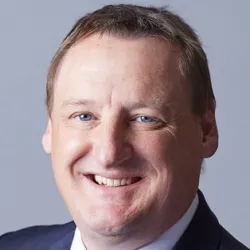
Christian Beslmeisl
Deputy Head of Communications
Bank for International Settlements
Christian Beslmeisl is the Deputy Head of Communications at the Bank for International Settlements (BIS). His team is responsible for the BIS’s website, www.bis.org, its Social Media channels, intranet and for visual communications services. Christian joined the BIS as a Senior Business Analyst in 2002 and in this role was responsible for developing the BIS’s intranet. He has held increasingly responsible positions at the BIS, including Head of Publishing. Prior to joining the BIS, Christian worked for the Deutsche Bundesbank, with his last position being deputy team leader of the eCollaboration team. Christian holds a degree from the Deutsche Bundesbank University of Applied Sciences

Marianne Bechara
Senior fintech counsel
International Monetary Fund
Ms. Marianne Bechara is a Senior Fintech Counsel in the International Monetary Fund’s Legal Department, where she provides legal advice on Fintech, central banks legislation and supervision regimes of financial institutions. Prior to relocating to U.S., Ms. Bechara was senior legal counsel directly assisting the General Counsel of the Lebanese Central Bank and Capital Market Authority at the time. Ms. Bechara received her a Bachelor of Laws in both Lebanese and French laws from Saint-Joseph University, Lebanon, and her LL.M in Banking and Financial Law from Boston University, U.S. She also completed the Fundamentals of FinTech and Banking Law Program at the University of California, Berkeley, U.S. She is an attorney admitted to practice law in both California and New York, U.S.

Sholthana Begum
Head of data and strategy
FCA

Ulrich Bindseil
Director general of the ECB’s directorate general for market infrastructures and payment systems (DG-MIP)
European Central Bank
Ulrich Bindseil is the Director General of the ECB’s Directorate General for Market Infrastructures and Payment Systems (DG-MIP) since 1. November 2019. Previously, he had been the ECB’s Director General for Market Operations (since May 2012) and head of the ECB's Risk Management Division (between 2005 and 2008). Ulrich has joined central banking in 1994, namely in the Economics Department of the Deutsche Bundesbank, after his Economics studies. His publications include: Monetary Policy Operations and the Financial System (OUP, 2014): Central banking before 1800 – A rehabilitation (OUP, 2019).
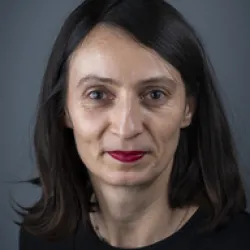
Cristina Bodea
Professor, Department of Political Science
Michigan State University
Cristina Bodea is a Professor in the Department of Political Science at Michigan State University. Bodea joined the MSU faculty in 2006, after earning a PhD degree from the University of Rochester (2006) and following a post-doctoral research fellowship at Princeton University. From 2007 to 2009 she has been on leave from Michigan State, working as an Economist at the European Central Bank in Frankfurt, Germany. Bodea’s research interests are in International and Comparative political economy; Gender and political economy; and Political conflict. Her work has been published or is forthcoming at the Journal of Politics, British Journal of Political Science, International Organization, European Journal of Political Economy, Governance, Public Choice and Economic and Politics. She also has working papers published by the World Bank and the European Central Bank

Ingrid (Wuerth) Brunk
Helen Strong Curry Professor of international law
Vanderbilt Law School
Ingrid (Wuerth) Brunk (@WuerthIngrid) holds the Helen Strong Curry Chair in International Law at Vanderbilt Law School where she also directs the Branstetter Litigation and Dispute Resolution Program. From 2012-2018 she served as Co-Reporter for the American Law Institute’s Restatement (Fourth) of Foreign Relations Law. Professor Brunk has served on the board of editors of the American Journal of International Law and on the State Department’s Advisory Committee on Public International Law. She has received numerous honors and fellowships, including many teaching awards, the Morehead Scholarship at the University of North Carolina at Chapel Hill, a Fulbright Senior Scholar award, the German Chancellor’s Fellowship, and election to the German Society of International Law, to the Order of the Coif at the University of Chicago Law School, and to the American Law Institute. She has written extensively on transnational litigation, foreign relations law, and public international law.

Coralia Bulhoes
Chief financial officer
Bank of Canada
Coralia Bulhoes was appointed Chief Financial Officer (CFO) and Managing Director (MD) of Financial Services, effective March 2020. In this capacity, she is responsible for the Bank’s financial framework: from implementing the corporate planning cycle to delivering all accounting and financial reporting services. She provides business support to the Executive Leadership team and is a member of the Management Council.
Ms. Bulhoes brings to the Bank more than 18 years of leadership experience in corporate services and business management. She was previously Chief Operating Officer (COO) at the Federation of Canadian Municipalities (FCM), a role she had held since 2006. Prior to assuming the COO role, she was FCM’s Director of Finance.
Ms. Bulhoes is a Chartered Professional Accountant and has a Bachelor’s degree in Accounting from the Université du Québec en Outaouais.

Clare Bullivant
Data & Analytics Platform Delivery Manager
Bank of England
Clare is the Delivery Manager for the Bank of England's big data platform. Clare leads a team of Delivery Partners to ingest data onto the Bank’s new Data & Analytics Platform, working with users to define requirements and oversee all aspects of the on-boarding journey. Clare also helps to deliver continuous improvements in user experience & platform functionality, as well as implementing the relevant governance processes to ensure proper usage of the platform.
Prior to her current role, Clare was a key member responsible for leading the design and delivery of the Bank’s first big data platform and the new platform that has since gone into production. Clare started her career as a junior programmer developing the Bank’s Real Time Gross Settlement service, the infrastructure that holds accounts for banks, building societies and other institutions. During her career Clare has worked her way up to Senior Tech lead roles before settling into a Delivery Manager role.
Clare has over 20 years of experience in delivering technology solutions to enable the Bank of England's business users to derive better insights from their data.

Dr. Dave Campbell
Assistant Director, Data Science Applications
Bank of Canada
Dr Dave Campbell is an internationally recognized expert in data science whose methodological research customizes methods with domain knowledge to improve algorithm performance and insights. His publications include co-authored discussion papers in the Journal of the Royal Statistical Society and Bayesian Analysis. He has been heavily involved in the data science practicing and academic communities. Before joining the Bank, Dr. Campbell was a full professor with cross joint appointment in Statistics and Computer Science at Carleton University. He was the inaugural President of the Data Science and Analytics Section of the Statistical Society of Canada and a co-organizer of the Vancouver Learn Data Science Meetup. He led the development of a BSc in Data Science while he was a faculty member at Simon Fraser University.
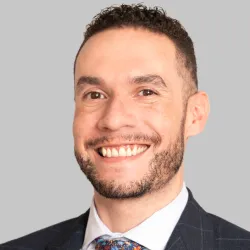
Carlos Cantu
Lecturer and former BIS senior economist at the monetary economics department
Instituto Tecnológico Autónomo de México
Carlos Cantú is currently Lecturer at the Instituto Tecnológico Autónomo de México and was previously the senior economist at the monetary economics department at the BIS. He obtained his MA and PhD in economics from the University of California, Los Angeles. Before obtaining his PhD, he worked for the Bank of Mexico in the Economic Research Department. He is part of the secretariat of the BIS Consultative Group on Innovation and the Digital Economy Technical Task Force on CBDCs.

Greg Carpenter
AVP of Unified Communications
Federal Reserve Bank of Philadelphia
Greg Carpenter is the AVP of Unified Communications for the Federal Reserve. His previous roles span across multiple government organizations including The Federal Reserve Bank of Cleveland, NASA, United States Army Space Command, and United States Air Force Space Command. In these organizations Greg has led risk management, information security, and business continuity functions. The blend of Greg’s background and a focus on customer experience provides a unique perspective to risk management and technology survivability approaches.
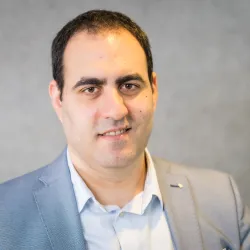
Paul Chammas
Managing partner
CLARICE SAS
Paul Chammas is a Technology Risk & Cybersecurity Consultant and Auditor, with more than 12 years of experience within big consulting firms. He co-founded in 2018 CLARICE, a startup specialized in Innovation & Risk Management, then co-founded in 2021 QuRISK, a startup specialized in Quantum Computing & Risk Management.
Paul holds a Telecommunication Engineering diploma from EFREI Paris and an Advanced Master in Technology Management from HEC Paris. Paul is certified CISA, CRISC and ISO27005.

James Chapman
Senior research director, funds management and banking
Bank of Canada
James Chapman is the senior research director in the Funds Management and Banking Department at the Bank of Canada. He received a Ph.D. in Economics and an MSc in Statistics from the University of Iowa in 2006. He joined the Bank of Canada as a senior analyst in that year. His primary research focus has been on interbank market and financial market infrastructure issues such as liquidity risk and credit risk in large-value payment systems as well as the efficiency of interbank markets. Recently his research focus has evolved to include research on fintech related topics. These topics include the use of distributed ledger technology in financial market infrastructure, specifically the Bank’s Project Jasper, as well as questions related to digital currencies such as Bitcoin, Ethereum and initial coin offerings.

Chair: Andrea Clarke
Chief strategy officer
Bank of Jamaica
Mrs. Andrea Clarke, Chief Strategy Officer, Bank of Jamaica is a seasoned central banker with over thirty years’ experience working in both private and public sectors.
Andrea holds the position of Chief Strategy Officer tasked with the principal responsibility for leading Bank of Jamaica’s strategic planning and project management functions. Since her assignment to this role in 2019, she has been successful in formally developing the operations of the Strategic Planning and Project Management Centre, formalizing strategic planning and project management standards across the Bank, as well as currently leading several critical strategic projects to include Jamaica’s transition to the Twin Peaks financial regulatory model.
Amongst her accreditations are a Master of Business Administration Degree from the University of New Orleans; a Bachelor of Science Degree in Management Studies & Accounting from the University of the West Indies; Senior Certified Professional in Human Resources designation (SHRM-SCP); Balanced Scorecard Professional (BSP) designation from the Balanced Scorecard Institute, USA and the Project Management Professional (PMP) certification.

Carl Andreas Claussen
Senior advisor
Sveriges Riksbank
Carl Andreas is senior advisor at the Riksbank. He is an experienced central banker and is currently involved in questions related to money and the digitalisation of payments. His latest research focus on cash demand. Claussen has worked at several central banks and done technical assistance and consultancy work for many more. He has published in academic journals, central bank outlets and blogs. He has a Phd in political economy from the University of Oslo, Norway.

Alejandro de la Concha Duarte
Data scientist
Financial Network Analytics
Alejandro is a PhD student at the École Normale Supérieure Paris-Saclay. His area of expertise is machine learning and currently, his research focuses on change-point detection on signals observed over graphs. Alejandro joined FNA in 2020 as a data scientist. He collaborates on projects related to the management of financial market infrastructures and oversees the development of investment strategies using natural language processing.
Prior to joining FNA, Alejandro worked for almost two years in the Directorate of Risk Management at the Bank of Mexico. During this time, Alejandro designed and implemented statistical and financial models to manage financial risks in the national reserve portfolio. His expertise on network analysis, also allowed him to collaborate on research projects aimed at assessing the stability of financial market infrastructures in Mexico.

João Marques
Senior financial expert
IMF
Mr Marques is currently a Senior Financial Sector Expert at the IMF. He was previously Head of Division at the Resolution Department of the Bank of Portugal, responsible for legal, policy and regulatory affairs related with banking resolution and deposit insurance. Before that, between 2004 and 2013, he worked as a legal counsel in the Baking Supervision Department of the Bank of Portugal, mainly advising on regulation and policy issues related with capital requirements, internal governance, licensing and crisis management. He is a Law Graduate from Universidade Nova de Lisboa.
Mr Marques has been an active participant in the European discussions on banking resolution and crisis management since 2009. He represented Portugal as an expert in the negotiations of the Bank Recovery and Resolution Directive and the Single Resolution Mechanism Regulation in the Council of the European Union. He also participated actively in the European Banking Authority’s work on recovery and resolution issues, and chaired several working groups. During the Portuguese Presidency of the European Union he co-chaired the Council Ad-Hoc Working Party on the Establishment of a European Deposit Insurance Scheme.
Finally, Mr Marques has extensive practical experience in the resolution of systemic banks in Portugal. In 2014 he was a senior manager in the resolution process of one of the largest banks in Portugal (Banco Espírito Santo, SA) and in 2015 he chaired the task force at the Bank of Portugal responsible for the resolution of BANIF – Banco Internacional do Funchal, SA.

Mohammad Davoodalhosseini
Research advisor
Bank of Canada
Currently a Research Advisor at the Bank of Canada, Mohammad joined the Bank as a Senior Economist after he received his Ph.D. in Economics from the Pennsylvania State University in 2015. Prior to that, he received his B.Sc. in Electrical Engineering and M.Sc. in Economics from Sharif University of Technology, Iran, in 2007 and 2009, respectively.
His research interests can be classified into two broad categories: monetary economics and search theory. On monetary economics, he studies new developments in the field of electronic money and payments and explores how introducing a central bank digital currency (CBDC) can affect the implementation and transmission of monetary policy as well as the efficiency and stability of financial system. On search theory, he explores the role of information asymmetries in markets with search frictions, with applications to inter-bank, labor and over-the-counter markets. His work has been published in academic journals such as Journal of Economic Theory, International Economic Review, Journal of Economic Dynamics and Control and European Economic Review.

Chair: Robin Darbyshire
Former financial accountant
Bank of England
Robin Darbyshire is a chartered accountant who has worked, as an independent consultant for 10 years, mainly on central bank issues. He has undertaken a number of projects for the International Monetary Fund, including implementation of International Financial Reporting Standards (IFRS) in central banks. He has also worked on a payments system at a middle eastern central bank. Previously he spent 19 years with the Bank of England, for 17 of which he was responsible for the Bank’s accounts. He was a founder member of the committee that devised the accounting framework and policies for the European System of Central Banks and has recently undertaken projects for the European Central Bank related to Eurosystem accounting. He has written a number of articles on issues in central bank accounting and regularly speaks at conferences on central bank finances.
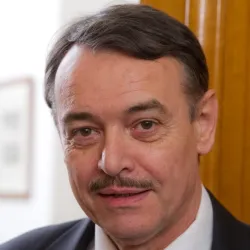
Christian Durand
Former deputy comptroller general
Banque de France
Currently an international consultant in central banking and financial sector issues, Christian Durand was until 2018 deputy comptroller general of Banque de France, with direct reporting to the governor. His domain of responsibility included the audit function, operational risks and on-site inspections conducted by French examiners at the request of the Single Supervisory Mechanism (SSM) or the French banking supervision authority. Before that, he was deputy director general for economics and international affairs at the Banque de France, and in this context was a member of Banque de France Monetary and Financial Stability Policy Committees and regularly attended CGFS meetings at the BIS. During his career, Mr. Durand has held senior positions with the International Monetary Fund’s Monetary and Capital Markets Department, the French Banking Supervisory Authority and the French Securities and Futures Commission and led negotiations ending with the signing of MOUs with the US Securities and Exchange Commission (SEC) and Commodity Futures Trading Commission (CFTC). He has also worked extensively with financial institutions in France and other organizations, including the New York Federal Reserve Bank, the International Organization of Securities Commissions (IOSCO), FIRST initiative and the AFRITAC project. Through his different assignments he has developed a professional experience in central banking, international economics, financial supervision and financial sector development and stability issues. He has conducted or supervised the implementation of several technical assistance projects for the EU, the IMF or the Banque de France and led, for the IMF FSAP program, financial stability assessment missions in a wide range of countries starting with Cameroon in 1999 and ending with the United States in 2010. His academic education is in economics (thesis on “the concept of money in the controversies on capital, interest and fluctuations in the early thirties”), finance and law.

Andrew Filardo
Visiting Fellow
Stanford University
Andy is currently a Visiting Fellow at the Hoover Institution, Stanford University. He worked at the BIS from 2002-21 where, most recently, he held the position of Head of Monetary Policy and, prior to that, Head of Economics for Asia and the Pacific. Before joining the BIS, he served on the staff of President Bush’s Council of Economic Advisers, was an Assistant Vice President and Economist at the Federal Reserve Bank of Kansas City, taught as an Adjunct Associate Professor at the University of Chicago Graduate School of Business, was a visitor at the IMF, and has worked with many central banks across the globe during his career. Andy has authored numerous publications in the fields of international monetary policy, macroeconomics, and financial stability. Andy holds a Ph.D. in economics from the University of Chicago.
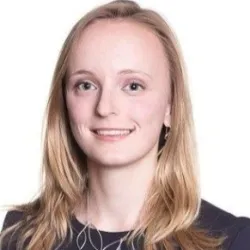
Joanna Froy
Legal Counsel
Bank of England

Agnes Gambill
Visiting Senior Research Fellow
George Mason University
Agnes Beatrice Gambill West is a Visiting Senior Research Fellow at the Mercatus Center at George Mason University.
Agnes' research focuses on decentralized finance (DeFi) regulation, lowering barriers to innovation, the role of surveillance and privacy in DeFi payment transactions, the freedom to transact, and novel models of corporate governance for decentralized autonomous organizations (DAOs).
Prior to joining Mercatus, Agnes worked for Appalachian State University as an assistant professor and as an attorney-advisor for startups. Agnes is Co-Chair of the North Carolina Blockchain Initiative, is an appointee to the North Carolina Innovation Council, and serves on the Business and Consumer Payments Advisory Council for the Federal Reserve Bank of Richmond. She has experience working as a proprietary trader and is the co-founder of an Ethereum-based blockchain payments company. Her research has been published in the American Intellectual Property Law Association's (AIPLA) Quarterly Journal.
Agnes received a JD from University of North Carolina School of Law, an LLM from Duke University School of Law, and an MSc from Oxford University.

Karsten Gerdrup
Director, macroeconometric modelling - monetary policy and financial stability
Norges Bank

Octavia Gibson
Director, currency and payments oversight
Central Bank of Barbados
Octavia Gibson joined the Central Bank of Barbados on December 29, 1975. Between 1975 and 2005, she worked in several departments in the Bank including Foreign Exchange, Banking, Accounts, Currency, Bank Supervision, Internal Audit and the Projects Unit.
Between 1998 and 2004, she spearheaded the Y2K Project, the RTGS and ACH Projects for the Bank and the financial sector.
In 2007, she was seconded to set up the Barbados Deposit Insurance Corporation and managed that entity until the appointment of its first CEO.
As Deputy Director, Currency, having been appointed to that post in 2005, she has been leading the Currency Team in a number of firsts including:
• Exhibition of world currencies
• Development of a royalty programme for numismatic coins
• Changeover to different materials for our coins
• Introduction of a new banknote series
• The One Cent Charity Drive done in association with the Rotary Club of Barbados, South and the Alzheimer’s Association.
• Withdrawal of the one cent
• Revamping of the Know Your Money Programme
• Introduction of an APP to assist with the authentication of the 2013 Banknote Series

Dr. Thomas Gottron
Principal data science expert
ECB

Simon Gray
Former regional advisor for Africa, the Middle East and Central Asia
International Monetary Fund
Simon Gray worked at the Bank of England for some 27 years before joining the IMF in 2007. Simon has recently retired, but over the past 25 years he has worked with central banks around the globe, predominantly on monetary operations framework and FX issues. He has written widely on these topics, both while in the Bank of England’s CCBS, and at the IMF, including most recently an IMF Working Paper on unifying exchange rates in countries where parallel exchange rate markets have emerged; and an IMF Departmental Paper on central bank asset purchases. Simon has also worked on a number of FSAPs, most recently leading the FSAP for China in 2017.

Audun Grønn
Former IMF Executive Director and Central Banker (Norges Bank)
Born 1953, Mr. Grønn holds a graduate degree in economics (cand.oecon. 1979) from the University of Oslo. Work experience since 1980 includes vfarious positions at Norges Bank, including Director of International Department, Director of Statistics Department, and Special Advisor to the Governor. Mr. Grønn spent altogether eight years at IMF’s Executive Board in Washington DC, as Senior Advisor (1989-1992), Alternate Executive Director (2011-2013) and Executive Director (2013-2016), as well as one year at the ECB in Frankfurt as national central bank expert, monetary policy (2005-2006). He retired from his position at Norges Bank in July 2021, and continued as a consultant at the Bank on a part-time basis until December 2023.

Daniel Heller
Head Regulatory Strategy
RTGS.global
Daniel Heller is an economist and financial sector expert specializing in international regulation. He is advising financial institutions , startups and central bank in the areas of FinTech, cross-border payments and digital currencies.
Previously, he has held various executive positions at the Swiss National Bank (SNB), the Bank for International Settlements (BIS) and the International Monetary Fund (IMF).
He holds a PhD degree in Economics from University of Bern and was a research fellow at Stanford University and the Peterson Institute for International Economics (PIIE) in Washington.

Freyr Hermannsson
Former head of treasury
Former Central Bank of Iceland
Freyr Hermannsson is an experienced central banker and has worked with a dozen central banks and United Nations agencies since the turn of the century. He is an independent advisor focusing on sovereign asset and liability management, particularly balance sheet management and central bank policy solvency, reserve management and public debt management. He has hands-on knowledge of monetary and exchange operations, FX markets development, exchange rate regimes, FX regulations (incl. capital controls) and capital account liberalization, central banking recapitalization and related accounting issues.
Mr. Hermannsson initially joined the Central Bank of Iceland in 2000 and after several years in the private sector was drafted back into the central bank in Iceland’s 2008 financial crisis where he served as Head of Treasury. He led international reserves management, implemented central bank open market operations, negotiated government debt transactions, developed capital controls, and worked on crisis prevention and management during and after the crisis of 2008.
A mathematician by education, he holds a M.Sc. from Columbia University in Operation Research and a B.Sc. in Mathematics from the University of Gothenburg, Sweden. He has lectured on the mathematics and economics of financial markets as an Adjunct Lecturer at the Faculty of Economics of the University of Iceland.
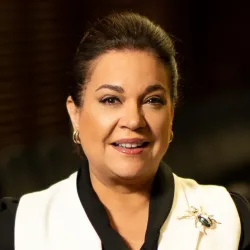
Fabiola Herrera
Deputy manager systems and innovation
Central Bank of the Dominican Republic
Academia and work areas. BA Degree in Computer Science, Summa cum Laude; Postgraduate degrees in Functional Analysis, Analysis and System Design, Digital Transformation (MIT). Her work areas include Payment Systems, IT, Cybersecurity, technological innovation and Fintechs, in both regulatory and operational aspects. She is also very active in financial inclusion and financial education.
Professional life. Since 1981, she worked in the private banking sector for 11 years in the IT area. She joined the Central Bank of the Dominican Republic in January 1996 in the Systems and Technology Department.
In January 2006 she was appointed Director of the new Department of Payment Systems, which, among other functions, coordinated the Reform Project of the Payment System of the Dominican Republic (SIPARD), including the implementation of Instant Payments nationwide. Also, was the leader in the process of the interconnection of the national payment systems of the Central America countries (SIPA), a network for cross-border payments that went live in 2011.
She is currently Deputy Manager of Systems and Technological Innovation, supervising the Departments of Payment Systems, Systems and Technology, and Cyber and Information Security (Department that she was instructed to create and develop in 2018). As such, is the promoter of the national legal framework for cybersecurity in the financial sector, and the creation of a cyber incident response center for this sector (Financial CSIRT). Also, she has recently managed several projects involving big data and risk management.
Locally, Ms. Herrera is a member of the National Table for Digital Economy, hosted by the Ministry of the Presidency, where the Central Bank has two important projects: the Financial Innovation HUB, and the National Strategy for Financial Inclusion. Besides, she represents the Governor of the Central Bank at the National Cybersecurity Council.

Niko Herrala
Head of monetary policy implementation
Bank of Finland
Niko Herrala works as a Head of Division in the Market Operations Department at the Bank of Finland. He is also a member of ESCB's Working Group on Monetary Policy Implementation.

Noel Greenland
Executive Director Communications
Bank of Jamaica

Mario Griffiths
Director, Payment System Policy and Development
Bank of Jamaica
Mario holds a BSc in Business Administration majoring in Finance at the Northern Caribbean University and an MBA in Banking and Finance from the University of the West Indies, Jamaica. He is charged with responsibilities for policy formulation, development and implementation of financial market infrastructures (FMIs) and financial technology for the enhancement of the National Payment ecosystem, development of industry strategies and regulatory policies, guidance around technology innovation affecting the National Payments, Clearing and Settlement systems and managing the development, review and improvement of the Bank’s regulatory framework, systemically important infrastructures and financial innovation (Fintech) to ensure a robust and dynamic regime which satisfies international and regulatory requirements and ultimately mitigates systemic risk. Currently, he is the Technical Expert providing support and technical advice on the implementation of the CBDC Pilot project. He also represents the Financial Markets Infrastructure Division on several committees and working groups in the area of Fintech, Fast Payments, Bigtech, Cryptocurrencies, CBDC and Financial System Stability. In 2016, he was seconded to the Bank for International Settlements (BIS) where he was assigned to the Monetary and Economic Department, Committee on Payments and Market Infrastructure (CPMI).
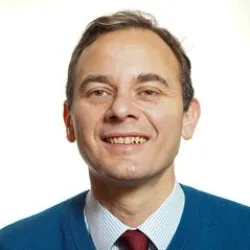
Alessandro Gullo
Assistant general counsel
International Monetary Fund
Mr. Alessandro Gullo is Assistant general counsel at the Legal Department of the International Monetary Fund, where he is leading the team of the Fund’s lawyers working on monetary, financial and fiscal law in IMF’s member countries. A national of Italy, he has advised a wide range of countries across the globe on the design and implementation of their fiscal and financial legal frameworks, also in the context of the IMF’s financial assistance. In his current capacity, he is contributing to the IMF’s digitalization agenda through analytical papers on the different forms of private and public digital money, and country advice on legal reforms in this area. He served in various committees of international organizations contributing to international standards, particularly in the financial sector area. Mr. Gullo published on banking and fiscal law matters, including most recently on the legal reforms adopted by countries in response to the pandemic. Before joining the IMF in 2008, he worked for international law firms, in Europe and in the United States.
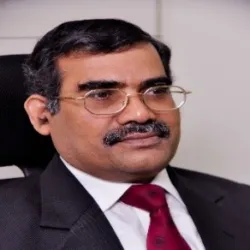
Abhaya Prasad Hota
Former head of payment systems
Former Reserve Bank of India
Abhaya Prasad Hota, - former Head of Payment Systems in Reserve Bank of India is known for his valuable contribution in design and development of payment system in India. After his central banking experience for 27 years mostly in the area of payments and technology, he headed the umbrella retail payments institution named National Payments Corporation of India (NPCI) during 2009-2017 as its founding CEO. NPCI today handles 10 out of 13 types of retail payment systems in the country accounting for almost 80 percent of all inter-bank retail payment transactions. He played the key role in building the real time 24x7 retail money transfer system ( handling 110 million transactions a day), domestic card payment system (the largest in the country in terms of number of cards issued in the country) and identity based Direct Benefit Transfer system ( all government subsidies for social welfare programs passing through this DBT system).
Currently he serves as an Independent Director in the Boards of a few organisations in the area of banking and finance and speaks at various fora on design and development of national level payment system. During the year 2018-19, he was also in the World Bank Panel of Experts on Payment Systems.

Claire Jones
Acting US economics editor
The Financial Times

Marius Jurgilas
Board member
Bank of Lithuania
Marius Jurgilas has brought his experience in both academia and government to the important role of Member of the Board of the Bank of Lithuania with responsibility for supervisio, payment systems and research. During his tenur Lithuania emerged as a top jurisidiction for fintech companies witin the EU under the leadership of the Bank of Lithuania, forging Mr Jurgilas' reputation as a leading European thinker on the future of banking.

Amirthlingam Kanagalingam
Deputy director, business technology
Bank Negara Malaysia
Kanagalingam is currently a Deputy Director in the Business Technology Department of Bank Negara Malaysia. He is responsible for strategy and governance matters, with a focus on planning, performance and change management. Before this he was responsible for the Central Bank’s organisational strategy and business planning function. He joined the Bank in 1990 and over the 30 years has served in several capacities, including bank supervision, crisis management, international capacity building and organizational development. He holds an MBA from London Business School.

Ashraf Khan
Senior Financial Expert
International Monetary Fund
Ashraf Khan is a senior financial sector expert at the Monetary and Capital Markets (MCM) Department at the International Monetary Fund (IMF). He leads MCM’s work on central bank governance, risk management, and currency management. He also contributes to the Fund’s work on fintech, and Islamic Finance, and coordinates the IMF’s Central Bank Legislation Database. Before joining the IMF, Mr. Khan worked as head of the Governance and Accounting Department at the Central Bank of the Netherlands, as a trade policy advisor at the world trade organization (WTO), and as a corporate lawyer with CMS Derks Star Busmann. He holds a Master of Dutch Private Law, and a Master of International Law from the Vrije Universiteit of Amsterdam, as well as a Master of Philosophy from Jawaharhal Nehru University, New Delhi.

Anneke Kosse
Senior Economist
BIS
Anneke Kosse is a Senior Economist at the Secretariat of the Bank for International Settlements’ Committee on Payments and Market Infrastructures (CPMI). Her portfolio includes conducting research and supporting the Secretariat’s policy and standard-setting work in the area of central bank digital currencies, cryptoassets and stablecoins. Previously, Anneke worked at the Bank of Canada, most recently as a Research Advisor at the Banking and Payments Department, where she was responsible for leading the Bank of Canada’s research agenda for the modernization of the Canadian payment system. Prior to that, Anneke worked for nearly ten years at the Dutch Central Bank, where she conducted research in the area of retail payments. Her payments research has been published in various peer reviewed journals. Anneke holds a PhD in Business and Economics from Tilburg University.

Mads Kristensen
Assistant director, internal audit
Norges Bank
Mads G. Kristensen is the deputy head of the Internal Audit department at Norges Bank. He is certified as a state authorised public accountant as well as an internal auditor. A substantial part of his work is devoted to the banks operations for managing the Government Pension Fund Global, which is one of the largest sovereign wealth funds in the world. Mr. Kristensen holds an MSc in Accounting and Auditing from BI Norwegian Business School.

Boyd Laanstra
Senior analyst, visual content, currency department
Bank of Canada
Boyd Laanstra is a Senior Analyst, Visual Content, with the Currency Department at the Bank of Canada, where his main role is to research and recommend visual content for new Canadian bank notes, and to help oversee the integration of this content throughout the design and production phases. While with the Bank, he has helped to develop two new notes - the Canada 150 commemorative bank note issued in 2017 and the vertical $10 note featuring Viola Desmond issued in 2018.
Prior to joining the Bank, Boyd led public history projects with the Department of Canadian Heritage and the National Capital Commission. This included the creation of an award-winning sound and light show that was projected onto the façade of the Parliament Buildings in Ottawa each evening of the summer months. He holds a Bachelor of Arts degree in History from McGill University in Montreal and a Master’s degree in Museum Studies from the University of Toronto.

Volodymyr Lepushynskyi
Director, monetary policy and economic analysis department
National Bank of Ukraine
In 2004, joined the National Bank of Ukraine (NBU) on the position of economist responsible for forecasting money market performance. From 2008 to 2019, worked as the Head of Unit, Deputy Head of Division, Head of the Division for Monetary Policy Strategy, Deputy Director of Monetary Policy and Economic Analysis Department. In December 2019, was appointed as a Director of Monetary Policy and Economic Analysis Department. Has contributed to implementing inflation targeting regime in Ukraine, elaborating strategic documents on monetary policy and developing a rules-based monetary policy framework.
Graduated from Kyiv National Economic University with MA degree (with honors) in Finance (2004). Holds a Ph.D. in Economics from Ukrainian Academy of Banking. Has published extensively on monetary, macroeconomic, and modeling issues.
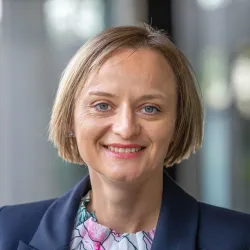
Astrid Lipfert
Deputy Head of Press and Public Relations Division, DG Communications
Deutsche Bundesbank
Within the DG Communications at Deutsche Bundesbank Astrid Lipfert is the Deputy Head of Press and Public Relations Division. Her team is responsible for strategic issues of the department, direct communication with the general public, regional communication activities and Bundesbank’s art collection. Astrid has been working at Deutsche Bundesbank for 20 years. She has held several positions in different departments including leading the website team and senior adviser to the Director General Communications. Astrid holds a degree in Central Banking from the Deutsche Bundesbank University of Applied Sciences and a degree in Business informatics.

Florian Loecker
Chief Product and Technology Officer
FNA

Pier Mario Lupinu
PhD candidate in banking and finance law, faculty of law, economics & finance,
University of Luxembourg – Universitá Degli Studi Roma Tre
Pier Mario Lupinu is a PhD Candidate in Banking and Finance Law jointly at the Universities of Luxembourg and Roma Tre (Italy). He is a Young Researcher at the European Banking Institute and he has been a Visiting Scholar at the Columbia Law School in New York and a DAAD-funded visiting researcher at the Leibniz Institute for Financial Research SAFE at the Goethe University Frankfurt. Currently, he is a visiting researcher in Bank Insolvency at UNIDROIT. Ahead of the PhD, he worked for the European Commission, the European Investment Bank and the Single Resolution Board.
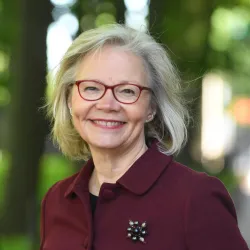
Patricia Mosser
Director of the MPA program in economic policy management
University of Columbia
Patricia C. Mosser is director of the MPA Program in Economic Policy Management at Columbia University’s School of International and Public Affairs and leads the school’s Initiative on Central Banking and Financial Policy. Previously, she was head of research and analysis at the Office of Financial Research, U.S. Treasury. Mosser spent over 20 years at the Federal Reserve Bank of New York where she was senior manager at the New York Fed’s open market desk overseeing financial market analysis, monetary policy implementation, crisis-related facilities, foreign exchange and investment operations, and analysis of financial stability and reform. In 2009, she was SOMA manager for the FOMC. She previously served as an economist and manager in the New York Fed Research Department and as an assistant professor in the Economics Department at Columbia. Mosser has written on financial stability and monetary policy topics including financial reform, crisis policy tools, cyber risks to financial stability, and the monetary transmission mechanism. She was previously a consultant to the Bank of England, a member of the Deputies Committee of the Financial Stability Oversight Council, and a board member of the American Economic Association’s Committee on the Status of Women in the Economics Profession. Currently, she serves as an outside director of Nomura Holdings Incorporated. She received a BA from Wellesley College, an MSc with distinction from the LSE, and a PhD from MIT.

Brian Muthiora
Former regulatory director, mobile money
Former GSMA

Emma Murphy
Strategy, communications and leadership consultant
former Bank of England
Emma Murphy is a strategy, communications and leadership consultant that worked for the Bank of England for almost 20 years. As part of her role there she developed and implemented the first strategic plans in the Bank of England’s 325-year history. These focused on how best to manage deeply analytical talent while building a more diverse workforce, transforming rigid ways of working, and bringing internal and external communications into the 21st century. Emma also led the division that introduced the Bank’s new approach to communications and has also played central roles in the integration of the Prudential Regulation Authority into the Bank and establishment of the Financial Policy Committee. Emma has advised other central banks around the World, helping adapt lessons learned from the Bank of England’s experience into their differing contexts and has particular expertise in meshing cultural change with the people and communications challenges.

Diarmuid Murphy
Central Bank of Ireland
Diarmuid has spent a considerable part of his career working on and writing about financial resilience and the operational aspects of central banking, and he has worked across the globe with many central banks and national supervisory and resolution authorities.
Diarmuid began his central banking career at the Central Bank of Ireland (CBI) and was part of the team that played a key role in the CBI’s response to the Irish financial crisis. Diarmuid has also worked in the market operations area of the European Central bank and spent several years at the International Monetary Fund (IMF), in both the central banking and crisis management areas, where he participated in the IMF’s technical assistance and Financial Sector Assessment Program (FSAP) work. Having returned to the CBI in 2018, Diarmuid took over responsibility for Brexit and fintech related banking/payment institution/e-money authorisations and banking contingency planning, establishing a new unit. In 2020, Diarmuid undertook a fellowship program with the Financial Stability Institute at the Bank for International Settlements in Basel focusing on crisis management issues.
In late 2021 Diarmuid commenced a secondment to the EU Commission, where he is now part of the Commission’s team responsible for implementing its published Renewed Sustainable Finance Strategy where his focus continues to be on financial resilience issues.
Diarmuid also co-leads the development and delivery of a dedicated comparative central banking module as part of a new online Global Central Banking and Financial Regulation master’s degree course with Warwick Business School (and in partnership with the Bank of England).

Sahar Nezami
Senior Director, Analytics & Insights
Bank of Canada
Sahar Nezami is a senior director at the Bank of Canada where she heads the Analytics & Insights practice. She has more than 15 years of experience building, growing, and leading data and analytics teams in various lines of business and different industries, from professional services, to retail banking, and now with central banking.
Sahar is an advocate of self-serve analytics and augmented decision support and believes in the value of data as a product and analytics as a service. She is a mentor and a volunteer and works on providing opportunities and support networks for women and newcomers, in particular.
Analytics strategy, talent development, and automating insights are some of the topics Sahar is interested in and speaks about.
Sahar is a software engineer with an M.Sc. in Economic Systems and an MBA. She lives in Toronto, Canada, and you can connect with her on LinkedIn.

Charles Niehaus
Managing director
Circle Payments
Charles is an independent consultant in Payments and Mobile Money, primarily focussed on Digital Financial Services. He led the Tanzania domestic DFS interoperability project for IFC, he was also fulfilled various roles in enabling DFS interoperability in Uganda and Mozambique and is has been involved in various DFS interoperability initiatives across Africa. Prior to this he was General Manager for Visa in sub-Saharan Africa and was responsible for Visa’s business across 25 African markets.
He is the past independent chairman of Zoona, an independent Mobile Money provider in Africa and is currently a shareholder in various African focused technology businesses, these include Fintech’s such as Yoco, a mPos business in South Africa, Stitch, an Open Banking API business targeting Africa and Kuunda, who provide data and agent liquidity tools for MNO’s and Mobile Money agents. He holds a Bachelors of Commerce from the University of Stellenbosch, a MBA from the University of Cape Town, attended the Accelerated Development Programme at the London Business School and also holds a Post Graduate in Futures Studies at the University of Stellenbosch Business School. He is currently studying towards his MPhil in Future Studies.

Tomáš Nidetzký
Former deputy governor
Czech National Bank
Tomáš Nidetzký graduated from the Faculty of Informatics and Statistics at the University of Economics in Prague and completed his postgraduate studies at Oklahoma City University in the USA. He started his career at the Czech Securities Centre. From 1995 he worked as assistant to the Chief Financial Officer of Komerční banka. In 1997 he joined Česká spořitelna, where he worked as director of strategic planning and financial group management until 1999. In 1999 he was appointed Chairman of the Board and Chief Executive Officer of Penzijní fond České spořitelny and from 2000 he was Chairman of the Board and Chief Executive Officer of Pojišťovna České spořitelny.
From 2003 he was a member of the Executive Board and Executive Director in charge of retail financial services at ING in the Czech Republic and the Slovak Republic. In 2004–2010 he worked as Deputy Chairman of the Board and First Deputy Chief Executive Officer of Stavební spořitelna České spořitelny. In 2011–2013 he was director of internal distribution at ČSOB Pojišťovna. Since 2013 he has worked as Chief Sales Officer at NN Czech Republic. In 1999–2004 he was a member of the presidium of the Association of Pension Funds of the Czech Republic and of the Czech Insurance Association.

Adeyemi Omotoso
Policy specialist - inclusive fintech
Alliance for Financial Inclusion
Adeyemi is a digital financial services, financial technology, and digital innovation enthusiast. He actively supports over 80 financial regulators and central banks on policy and regulatory priorities covering FinTech innovation regulation, supervision and ecosystem strategy, open finance, innovative digital financial services & retail payments, regulatory sandbox, payment systems, digital identity and e-KYC, responsible digital credit, electronic money regulation, regulatory and supervisory technologies and recently, digital currencies including central bank digital currency opportunities for financial inclusion, in his current role leading the Inclusive FinTech workstream at the Alliance for Financial Inclusion.
He has over 15 years professional experience working in payment processing, switching, core banking applications, digital banking channels, micro-insurance, micro-pensions, digital credit, micro-savings, cardless ATM services, mobile money, mobile banking, DFS product design across a spectrum of market segments, across Africa and a few markets in Asia.
He holds an engineering degree in Petroleum and Gas Engineering, advanced degree in managerial psychology and a MBA.

Kwame Oppong
Head of fintech and innovation
Bank of Ghana
Kwame Oppong is the Head of Fintech and Innovation at Bank of Ghana.
His background spans Technology, Digital Financial Services (DFS), Public Policy, and Regulation. He has consulted for several governments, public sector institutions, international development organizations and private corporations globally.
Prior to joining the Bank, Kwame worked with CGAP (World Bank Group), Millicom, HP (now HP EB) and other organizations in the banking, housing finance and health insurance industries.
He is a passionate advocate for financial inclusion, innovation, and the development of digital economies.

Peder Østbye
Special advisor - payment analysis and innovation unit
Norges Bank
Peder Østbye is a special adviser in the department of Financial Stability in Norges Bank. He mainly advises on regulatory issues associated with new money and payment systems, and he is a member of the Banks’ working group on central bank digital currencies (CBDC). Peder has previously worked as a lawyer within competition and technology law. He holds a doctoral degree in law, and master degrees in economics and mathematics.

Małgorzata Osiewicz
Team lead, monetary and economics statistics division
European Central Bank
Małgorzata Osiewicz is a Team Lead in the Monetary and Economic Statistics Division of the European Central Bank. She leads a team responsible for conducting business and households’ surveys in Europe and exploring data sources for climate-related information. Previously, she was working in various areas of statistics, including topics on financial derivatives, labour market and payments data. Ms Osiewicz was also a consultant at the World Bank in the Trade and Competitiveness Global Practice.

Rebekah O'Toole
Data & Analytics Platform, Strategy & Implementation Manager
Bank of England
Rebekah O'Toole heads up the Bank of England’s Big Data Platform service. She led a multi-disciplinary team in the detailed design of the operating model for the Big Data Platform, and has overseen its implementation into a live operational service.
Prior to her appointment at the Bank of England, she was a Director at a Consultancy with over 20 years' experience in delivering large/complex transformational change programmes. Leading engagements with FTSE100 companies and central and local government.
Rebekah has an MBA and specialises in business change management.

Claudio Pastori
Process manager, directorate general information systems
European Central Bank
Claudio has more than 15 years of experience as central banker, mainly acquired in the area of enterprise service and vendor management. Claudio works in the Governance and Transformation Services Division of the European Central Bank (ECB). He supports the business in their journey to become customer-centric and service-oriented areas. For many years he has been Service Level Management Process Manager at the ECB serving the Directorate General Information Systems, with focus on value creation, lean process improvements and service optimization. He is currently facilitating the dialogue between internal service providers and their customers. Claudio holds a Ph.D. in Economics and a Ph.D. in Methodological Statistics.

Bimal Patel
Managing director of client delivery, EMEA
FNA
With over 20 years experience delivering a wide range of technology projects within large global banking and markets organisations, Bimal collaborates with clients and FNA's subject matter experts to deliver the best possible solutions with efficient use of resources and technologies, and is the client lead for developing and delivering FNA’s agent based CBDC simulation solution to central banks and financial institutions. Prior to FNA, Bimal has successfully delivered a number of large and critical projects in the financial services industry covering front, middle and back office.

Diana Posada
Senior economist
Bank of Spain
Diana Posada works at the Bank of Spain as a senior economist. She joined the banknotes directorate in 2019 and since then her research has focused on access to cash, financial inclusion or the use of payment methods among others. She has been part of different workstreams on access to cash of the Eurosystem. Additionally, she is a member of the financial exclusion advisory group of the Bank of Spain.

Sharmyn Powell
Chief risk officer
Eastern Caribbean Central Bank
Ms Sharmyn Powell has been employed at the Eastern Caribbean Central Bank for over 25 years and currently holds the position of Chief Risk Officer. She leads the Office of Corporate Strategy and Risk Management with responsibility for Enterprise Risk Management, Compliance, Strategic Plan development and monitoring and Business Continuity Management.
Prior to assuming this role, she served in various capacities at the Bank including, Deputy Director, Accounting Department, Director, Currency Management Department and Director, Support Services Management Department. She is the Chairperson of the Bank’s Fintech Working Group, which is leading the implementation of the DCash Pilot Project for the issuance of a block-chain based digital version of the EC Currency.
Ms Powell is a Certified Accountant (ACCA), and also carries the designations of Chartered Director (C. Dir) and Audit Committee Certified (A.C.C).

Amanah Ramadiah
Data scientist
FNA
Amanah is a Data Scientist at FNA and serves as the primary client-facing Data Scientist in the Asia-Pacific region. She is the lead data scientist developing and delivering FNA’s agent-based CBDC Simulator to central banks and financial institutions. She holds a Ph.D. in Computational Finance from University College London. Her main research interest is systemic risk, with a particular focus on the application of complex networks to the study of financial stability. Prior to joining FNA, she was affiliated with the Bank of England and the International Monetary Fund.

Mirela Roman
Strategy advisor to the board (external communication and public relations)
National Bank of Romania
Following the graduation IT College and the Academy of Economic Studies in Bucharest, Mirela Roman joined the Monetary Policy Department of the National Bank of Romania for almost three years up to 1994 when switched to gain almost 12 years of valuable experience as an economics correspondent at Reuters News Agency, working in Bucharest, London, Prague, Warsaw or Copenhagen. In 2005 she rejoined NBR as an Adviser to the Governor and has run a newly created Communication Department for eight years before taking a new challenge: the strategy path. Economic analysis, news coverage, project development and team coordination defined her business for years, while her focus was growing with memberships in the local Foreign Press Association, the Romanian-Chinese Association, the Club of Rome Romanian arm, Ethics Board of the ICCO-Affiliated Romanian Association of Public Relations as well as a lecturer in Winsor or Cambridge training series by Central Banking Publications for a decade now.
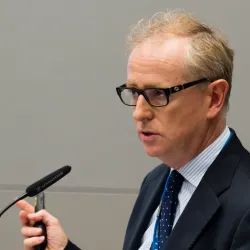
Massimo Rostagno
Director General Monetary Policy
EUROPEAN CENTRAL BANK
Massimo Rostagno is Director General Monetary Policy. Before joining the European Central Bank in 1998, he was a research economist at the Banca d’Italia and later desk Economist in the European Department of the IMF. He has written on the political economy of fiscal policy, on the reform of social security, on the history and theory of monetary standards, on stochastic general equilibrium macro-modelling and on monetary economics in general. He has published in the American Economic Review, the Quarterly Journal of Economics, the Journal of Money, Credit and Banking, the Journal of Economic Dynamics and Control and contributed to several other publications.
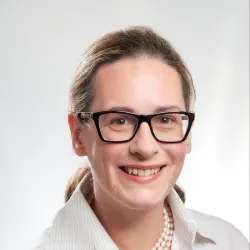
Ivana Ruffini
Managing director of advanced analytics
FNA
At FNA, Ivana serves as a Subject Matter Expert and manages a team of data scientists who develop analytic solutions for FNA clients.
Prior to joining FNA in 2019, Ivana spent nine years at the Federal Reserve Bank of Chicago, where she utilized network theory to improve the understanding of the propagation of risk in the global financial system. She also analysed the impact and efficacy of regulations and customer protections in derivatives markets and helped inform policymakers on how changes in payment systems and financial market infrastructures may impact various participants in financial markets.
Ivana was also active in the alternative investment space as a private equity investment professional, a derivatives trader, and a credit risk specialist. Her prior employers include Baird Capital Partners, One Equity Partners, and JPMorgan.
Ivana graduated with honors from Denison University and did her graduate studies at Northwestern University. In addition to incorporating network theory in modeling financial markets, her research interests include the development of predictive analytics that utilizes machine learning and linking agent-based and Bayesian modeling.

Matteo Ruisi
Creative director
Bank of England
My name is Matteo and I am an award-winning Creative Director and Brand designer. In my career, I had the pleasure to work for international clients, blazing start-ups, and advertising networks, shifting the way companies present themselves to their audiences.
In 2017 I started working at the Bank of England in the Communications Directorate, guiding the in-house comms team on brand, design and communications. While working at the Bank, I’ve also been consulted by a number of central banks on branding and creative communications.
I recently directed and introduced a visual identity system for the Bank of England, which has soon started paying back in a number of ways that exceeded my expectations.
My current goal is to transfer my vision to the Comms team, empowering them to make steady improvements to the way the Bank communicates visually and verbally. And if the opportunity comes, I would love to guide other central banks towards the same game-changing results

Amir Safranovich
Head of cash management
Bank of Israel
Amir Safranovich has been with the Bank of Israel since 1997. Mr Safranovich has headed the Cash Management Division in the Currency Department of the Bank of Israel since 2003.
He is responsible for determining and implementing cash management policy in Israel and among other things, he is responsible for the supervision of cash centre, the regulation of the cash market, the contingency plan for cash, the banknotes quality standards, the reduction of counterfeits in circulation and the BOI cash centres operation.
Previous to this appointment, Mr Safranovich worked in the Banking Supervision Department in the Bank-Customer Relations Unit (1997-2003). He has a Master of Science degree in Economics from the Technion - Israel Institute of Technology, and an MBA from Bar Ilan University.

Oded Salomy
Director of payment systems
Bank of Israel

Dilyara Salakhova
former senior financial stability expert
European Central Bank
Dilyara Salakhova is an expert on sustainable finance and financial stability with more than ten-years experience at the ECB and Banque de France. At the ECB, she led the agenda on sustainable finance and worked extensively on green bonds, ESG investments funds, funding of the transition as well as climate-related risks to financial stability. Dilyara helped to inform the policy debate on sustainable finance by contributing greatly to the ECB Opinion on EU Green Bond Initiative, NGFS report on enhancing market transparency in green and transition finance, Joint ECB/ESRB Reports on Climate-related risk and financial stability, ECB Financial Stability Reports. Dilyara has also written several academic publications on the topic.

Manit Sahib
Head of penetration testing
Bank of England
Manit Sahib is the Head of Penetration Testing at the Bank of England. He is an Offensive Security (OSCP) and CREST certified tester with NCSC’s CHECK status. Previously a security consultant at PwC, he has obtained a vast amount of technical experience from a variety of global organisations. Now, leading BoE’s offensive team to plug the gaps in a collaborative approach.

Gregorio Sánchez
Deputy manager of industrial engineering
Bank of Mexico
Gregorio is an industrial engineer, with a master’s degree in quality assurance, he has broad experience in the banknote production and distribution processes. During the last year he was in charge of the issuing (issuance) of the last 2 denominations of the new Mexican banknote series, as well as the R&D activities in Banco de México. He also has been in charge of the implementation of Lean Six Sigma in the Mexico City printing works and improvement of the Mexican coin series.
He has collaborated in Banco de México for 22 years, and currently holds the position of Deputy Manager of Industrial Engineering.
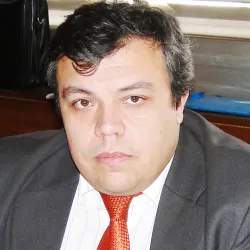
Adolfo Sarmiento
Head of economic policy and markets
Central Bank of Uruguay
Adolfo Sarmiento is Head of Economic Policy and Markets, advising to the board at the Central Bank of Uruguay, he is responsible for the Monetary Policy implementation, and he’s also involved in FinTech specially in the CBDC Projects. He holds a degree in Economics of the University of the Republic of Uruguay, a Master in Applied Macroeconomics of the Catholic University of Chile and a PhD in Economics for the Catholic University of Argentina.

Guenther Sedlacek
Head of reporting development
National Bank of Austria
Guenther Sedlacek is Senior Reporting Development Manager and head of the unit “integrated data model” in the statistics department of the Oesterreichischen Nationalbank (OeNB). Since 2013 he has been responsible for the development of the new integrated reporting data model used in the Austrian banking market as well as for the cooperation with reporting agents belonging to the financial sector and software providers.
He studied Technical Mathematics und started his business career as a research assistant at the statistics department of the Vienna University of Economics and Business, where he also received his PhD. In 2001 he changed over to the statistics department of the OeNB. There he was responsible for the development and operation of the security-by-security reporting and compilation system till 2010. During this period he also worked several months for the directorate statistics at the ECB and in the financial market division of the OeNB. In 2010 he became head of the direct investment unit in the statistics department and in 2012 he took over the collection and management of micro data, including the central credit register. In 2013 he was nominated to be the chair of the Austrian Standing Committee on Reporting, where – among others - strategic decisions concerning the integrated reporting data model (timelines, contents, etc.) are made and amendments to national legal acts are discussed. He is strongly involved in some European projects regarding the future of reporting. In 2020 he has been responsible for developing a data governance concept for the OeNB in order to strengthen data usage.
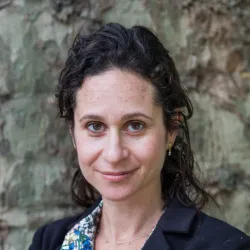
Dr Joana Setzer
Assistant Proffessor
London School of Economics and Political Science (LSE)
Dr Joana Setzer is an Assistant Professor at the Grantham Research Institute on Climate Change and the Environment, at the London School of Economics and Political Science. Her research explores the role of courts in climate governance. Since 2013 she has been involved in the Grantham Research Institute’s Climate Change Laws of the World project – the most comprehensive global resource on climate policy, legislation and litigation. She regularly serves as a consultant for a range of international and non-governmental organisations.
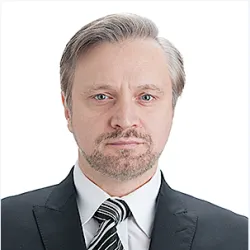
Ghiath Shabsigh
Assistant director, monetary and capital markets
International Monetary Fund
Ghiath Shabsigh is the Assistant Director of the Monetary and Capital Market Department at the IMF, with responsibilities covering, central banking, fintech and financial sector development. Since joining the IMF, he worked on economic reform programs, financial sector deepening, financial stability assessment programs, and capacity building in central banks in countries in Africa, Central and Southeast Asia, Europe, Middle East, and North America. His previous work experience includes working as a financial analyst and teaching. Mr. Shabsigh holds a Ph.D. degree in Monetary Economics and International Finance, a MA in Economic Development, a B.Sc. in Economics and Business, and several professional qualifications in banking and securities market operations.

Shehzad Ali Sharif
Joint director – strategic planning department
State Bank of Pakistan
Shehzad Ali Sharif currently working as a Senior Joint Director has more than a decade and a half of working experience with the Central Bank. His main areas of expertise are Strategic Planning, Annual Performance Review and BCP. He played a key role in the development of SBP Vision 2020. In the area of BCP, he has been involved since the inception of BCP program in 2006, and has been instrumental in the development of the BCP manuals, policies, establishment of multiple backup sites, conducting BIAs & BCP preparedness Reviews, BCP Communication cards and development of the BCP course curriculum. Due to his accomplishments in the field of BCP at SBP, Mr. Shehzad was awarded with the Organizational Competence Award. Mr. Shehzad holds an engineering degree and an MBA degree.

Shigenori Shiratsuka
Director general, institute for monetary and economic studies
Bank of Japan
Shigenori Shiratsuka is the director-general of the Institute for Monetary and Economic Studies at the Bank of Japan, a position he has held since 2016. Prior to this, he worked in various positions at the Bank, including deputy director-general of the Monetary Affairs Department, general manager of Kanazawa and Matsuyama Branches, and division head of the Economic and Financial Studies of the Institute for Monetary and Economic Studies, as well as head of the Financial Analysis and Research of the Financial Systems and Bank Examination Department. Mr. Shiratsuka has written numerous publications on monetary policy as well as macro prudential policy. He holds a B.A. and a Ph.D. in Economics from Keio University.
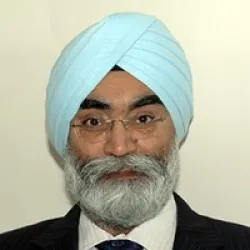
Charan Singh
former Reserve Bank of India
Dr. Charan Singh is currently serving as the Non Executive Chairman of Punjab & Sind Bank. He was full time visiting faculty and former RBI Chair Professor (Dec 2012 to Dec 2016) at the Indian Institute of Management Bangalore, India where he taught comparative monetary policy and policy issues in Indian economy.
Earlier, he was a Senior Economist at the Independent Evaluation Office of the International Monetary Fund, Washington DC from August 2009 to November 2012 and Research Director (Departments: Economic Policy, Debt Management) at the Reserve Bank of India (1997–2009). Singh earned his doctorate in Economics from the University of New South Wales, Sydney, Australia. He was a visiting scholar for more than a year each at Department of Economics, Harvard University and the Stanford Center for International Development, Stanford University. He is now serving as Director on the Board of National Housing Bank, Delhi and NABARD Financial Services Ltd, Bangalore. He is also Member, Governing Board at Policy Foundation, New Delhi; Member of Research Advisory Committee, BIRD, National Bank for Agriculture and Rural Development; Honorary Fellow, SKOCH Development Foundation; and Member of the Informal Advisory Group on Housing Sector Issues, IMF, Washington DC
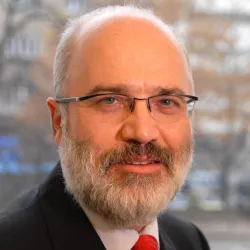
Marko Škreb
Former governor
Croatian National Bank
Marko Škreb is a former governor of the Croatian National Bank. Currently he is Central banking lead on a Financial sector reform project (FINRA) in Bosnia and Herzegovina, financed by USAID. Before that he was resident project manager for Canada-IMF Capacity building project at the National Bank of Ukraine. He moved to Kyiv from his position as advisor at the International Monetary Fund’s Regional Technical Assistance centre in Accra, Ghana. Before that, he was chief economist and strategist at the second largest commercial bank in Croatia. Mr. Skreb started his professional career teaching at the University of Zagreb. Following academic vocation he joined the Croatian central bank, first as research and statistics director and later on as governor (from 1996 to 2000). In 1997 he was awarded the Central European Annual Awards for Excellence - Best Central Bank Governor by the Banker. Since 2000 he worked as a consultant for the International Monetary Fund and the World Bank in numerous countries, mostly in South-East Europe. He also worked at the Independent Evaluation Office of the IMF in Washington DC in the period 2004-2005. Mr Škreb published a number of articles and edited books, focusing on transition questions and financial issues.

Marianne Sterner
Language consultant
Sveriges Riksbank
Marianne Sterner has worked as plain language consultant at Sveriges Riksbank, the central bank of Sweden, for fourteen years. She is part of the strategy group within the Communications Division, which has the task of planning the Riksbank’s communication and adapting it to its various target groups. Marianne has a combined BA degree in Swedish and French and has 35 years of experience as a freelance plain language consultant, mainly in the public sector.

Alexandre Stervinou
Director - cash and retail payments policy and oversight directorate
Banque de France
Alexandre Stervinou is currently Director in the Cash and Retail Payments Policy and Oversight Directorate at the Banque de France, a 50+ staff directorate in charge of strategic policy orientations for, and the oversight of, all types of retail payments, with a focus on fostering innovations in those fields (e.g. CBDC with the digital euro). The Directorate also has a direct responsibility on cash anti-counterfeiting matters. Prior to this, Alexandre held a Deputy Director role in the Market Infrastructures and Innovations Directorate and, between 2019 and 2021, he was a member of the Financial Stability Board (FSB) Secretariat, where he mostly dealt with innovation related matters on the G20 agenda for financial services, and more specifically on cutting-edge topics such as cross-border payments, cybersecurity, crypto-assets and stablecoins, BigTechs, cloud services, artificial intelligence and machine learning.
Between 2015 and 2019, Alexandre was the Head of the Non-cash Means of Payment Oversight division at Banque de France, in charge of policy and oversight issues for cashless payments. In this role, he was the Secretary of the Observatory for the Security of Payment Means, chaired by the Governor of Banque de France, and Secretary of the National Payments Committee. To this end, he contributed to the development of a national and European retail payment strategy supported by Banque de France, in collaboration with the private sector.
Alexandre has represented the central bank since 2008 in various international (G20, G7) and European committees related to payments, cybersecurity and innovation, notably working on regulation, supervision and oversight frameworks, and is currently also a member of the digital euro project steering group.
Alexandre started his career in the private sector, working in the financial services and telecom industry
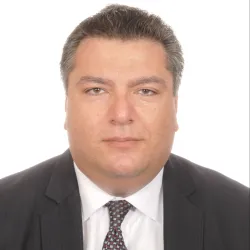
Evangelos Tabakis
Head of risk management & compliance
European Central Bank
Evangelos Tabakis is the head of Risk Management and Compliance in the Central Bank of the United Arab Emirates, responsible for financial and operational risk, business continuity, information security and compliance across the activities of the central bank. Previously he had been at the European Central Bank (ECB) in Frankfurt for fourteen years, holding positions in Market Operations and Risk Management. Most of his work at the ECB was related to the operational, risk management and financial stability issues posed by large scale collateralized lending to banks. Prior to his central banking career, Mr. Tabakis held academic positions at Yale University, the University of Bayreuth in Germany and the Athens University of Economics and Business in Greece. He holds a first degree in Mathematics from the University of Athens and a Ph.D. in Applied Mathematics (Mathematical Statistics) from the Massachusetts Institute of Technology.

Jeremy Torobin
Senior communications consultant
Bank of Canada
Jeremy Torobin has been a senior communications consultant (speechwriter) at the Bank of Canada since mid-2017. Torobin came to the Bank from Canada’s Finance Department, where he was a senior communications strategist responsible for financial sector policy. Prior to Finance, he was an analyst at Medley Global Advisors, a macro intelligence firm in New York, where he directed research on Canada and helped cover the US Federal Reserve and international organizations such as the G20 and IMF. Before Medley, Torobin spent 14 years in journalism including three years covering the Mark Carney-led Bank of Canada for The Globe and Mail, and four years just before that as a government/economy editor at Bloomberg News. This included a year in Washington DC at the height of the 2008-09 crisis. Earlier, he spent 2000-2004 in Washington working at CQ-Roll Call, reporting on everything from economic policy and trade to the response to 9/11 and authorization of the Iraq War. He left CQ in the fall of 2004 to spend the 2004-05 academic year at the London School of Economics, where he earned a master's in international relations on a British Chevening Scholarship. He also holds a journalism degree from Carleton University in Ottawa.

Jill Vardy
Advisor (communications) and chief of staff
Bank of Canada
Jill Vardy was appointed Advisor (Communications) and Chief of Staff, effective 3 January 2017. In this role, she provides strategic communications advice on major corporate and policy-related issues and works closely with Executive Council and department chiefs to maximize the Governor’s schedule and work priorities. She also plays a key role in strategic thinking and engagement with the Bank’s partners and stakeholders.
Ms. Vardy spent 14 years covering economics, finance, government policy and the technology sector for The Financial Post (later incorporated into the National Post). After covering economics in Toronto, she spent six years as a Parliament Hill reporter in Ottawa and six years as the National Post’s senior technology writer and columnist. In addition to writing, she also appeared frequently as a business panelist on CBC radio and television and taught economics and business journalism at Carleton University.
Ms. Vardy joined the Bank of Canada’s Communications Department in 2002 as a speechwriter for the Governor and other members of Governing Council. She became Director, Planning and Public Affairs, in 2006. In 2008, she served as the department’s Acting Chief and was then named Deputy Chief. She became Chief of Communications in December 2010, a position she held until her current appointment.
Born in Corner Brook, Newfoundland, Ms. Vardy attended Mount Allison University and earned an honours degree in journalism from Carleton University.

Tuomas Välimäki
Board member
Bank of Finland
Tuomas Välimäki has been a member of the Board of the Bank of Finland since 12 July 2018. Tuomas Välimäki is responsible for investment of the Bank of Finland's financial assets, monetary policy implementation and market operations as well as academic research and research on transition economies. He is also responsible for cash supply and payments as well as digitalisation and IT issues.

Miklos Vari
Economist
Banque de France
Miklos Vari is currently a Research Economist in the Bank of France monetary policy division, and a consultant for the IMF monetary and capital market department. He was previously an analyst in the ECB’s Directorate-General of market operations and an Economist at the International Monetary Fund. He has written policy papers and published academic articles in leading economics and finance economic journals on the impact of central bank’s market interventions. Miklos hold a PhD from the Paris School of Economics.
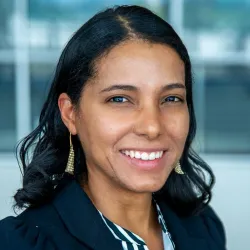
Elisa Vilorio de Painter
Advisor to the governor
Central Bank of the Dominican Republic
Elisa Vilorio de Painter holds a PhD in Economics from Florida International University (FIU). She holds a Master of Science in Finance and a Postgraduate degree in Risk Management from the Instituit D'administration d'enterprise (IAE) Aix en Provence in France, and is a Magna Cum Laude Industrial Engineer from the Pontificia Universidad Católica Madre y Maestra (PUCMM). She is also a former scholar of the prestigious Fulbright Program of the United States Embassy and the scholarship program of the French Embassy.
She has worked at the Central Bank of the Dominican Republic since 2007, and currently holds the position of Advisor to the Governor. She began her career in the Treasury Department where she held the positions of Technical Consultant, Deputy Director of International Reserves Management, Head of the Risk and Financial Analysis Division, and Investment Manager of the International Reserves portfolio. For more than a decade, she was responsible for the design and execution of the investment strategy of the International Reserves portfolio, quantitative analysis, risk management, and strategic asset allocation. In turn, she participated in official advisory missions to other Central Banks within the Reserves Advisory Management Program (RAMP) of the World Bank.
Her areas of professional expertise are: Financial Economics, International Economics, Applied Econometrics and Finance. She has presented her research on macroeconomics at different annual meetings of the American Economic Association (AEA), the Southern Economic Association (SEA), the Midwest Economic Association (MEA), the Eastern Economic Association (EEA), the International Atlantic Economic Society (IAES) and the International Trade and Finance Association (ITFA). She has also published in various Journals related to the active management of an International Reserves portfolio, hedging strategies using interest rate futures and the foreign exchange derivatives market.
She has been an undergraduate professor and researcher at Florida International University (FIU). She also taught in the Master's in Financial Management and MBA in Risk and Treasury Management at the Pontificia Universidad Católica Madre y Maestra.

Andrew Wamicwe
Regulatory director - mobile financial services
Airtel Africa
Andrew is the Regulatory Director in charge of Mobile Financial Services (MFS) at Airtel Money handling all regulatory requirements of the business.
He has over 13 years experience in banking, Central Banking, Corporate Credit, Retail credit, bank resolution, banking supervision, public policy, risk management, financial inclusion, operations, payment and settlement systems, risk and compliance audits, information technology law, and Corporate Secretarial services.
He joined Airtel Money from the Central Bank of Kenya (CBK) where he was working for 7 years. Previously, he worked with Barclays Bank of Kenya (now ABSA - Kenya) as an In House Counsel for 5 years.
He holds a Law degree (LL.B) from the University of Nairobi, He is an Advocate of the High Court of Kenya. He also holds a Masters degree in Public Policy (MPP) from Strathmore Business School. He is Certified Public Accountant (CPA-K) and Certified Public Secretary (CPS-K). In addition, he is a graduate of the Oxford Fintech program and the London School of Economics - LSE regulatory practice program.
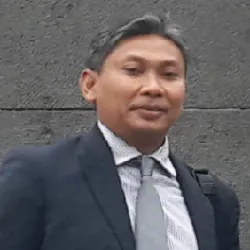
Onny Widjanarko
Executive director, head of communication department
Bank Indonesia

Maksym Komarov
Head of Strategic Planning Unit
National Bank of Ukraine

Dan Sucio
Head of Communication and Public Relations
National bank of Romania

Manisha Patel
Financial Sector Expert (CBDC - Payments, Currencies and Infrastructure)
IMF
Manisha Patel is a Financial Sector Expert in Payments, Currencies and Infrastructure within the Monetary and Capital Markets Department at the International Monetary Fund. During her career she has worked in both the private and public sector across both analytical/economic and policy roles. Prior to the IMF, Manisha worked at the Bank of England on future of money issues, primarily the UK's policy development and international dialogue on retail central bank digital currencies. Manisha studied Economics and Finance at university, and holds a Masters in Global Central Banking and Financial Regulation.

Stephen Mwaura
Chairman, Fintech Institute & former head of national payments systems
Former Central Bank of Kenya
Stephen is an international consultant with broad expertise for over 25 years in digital financial services, payment systems, central banking practices and legal and regulatory frameworks. Prior to working as an International consultant, Stephen was in charge of the National Payments System division at the Central Bank of Kenya, where he championed financial inclusion initiatives in Kenya- key among them was the globally recognised M-Pesa platform run by Safaricom which currently has 27 million subscribers, equivalent to a penetration rate of 75% in mobile money sector.
Stephen has considerable experience working with a wide range of stakeholders in the digital financial world (Telecommunication firms, Banks, donor organisations, Treasury, other regulators). At a regional level, he has extended his leadership expertise in the harmonisation of various initiatives at an East Africa Community (EAC) level. At an international level, he is a regular contributor and an acclaimed global speaker at both International Telecommunications Union (ITU) and Alliance for Financial Inclusion (AFI) fora. In addition, he has excellent research capabilities and is frequently requested to carry out peer review assignments and book reviews for colleagues in the industry

Roberto Motto
Senior Adviser - Directorate General Monetary Policy
European Central Bank
Roberto Motto is Senior Adviser in the Directorate General Monetary Policy of the European Central Bank (ECB). He holds a Ph.D. in Economics from the University of York. He has worked at the ECB since 2000. His expertise is in monetary policy and macroeconomics. He has published in several international journals such as “American Economic Review”, “Journal of Monetary Economics”, “Journal of Money, Credit and Banking”, “Journal of Economic Dynamics and Control”, and has co-authored a book on the history of the ECB monetary policy.
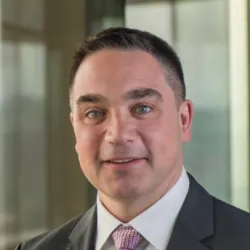
David Whyte
Head of cyber resilience coordination centre
BIS

Ali Al-Khaled
Manager of information security department (CISO)
Central Bank of Kuwait
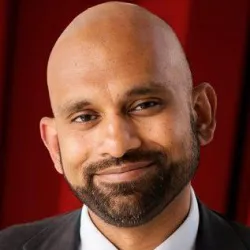
Emran Islam
Senior financial sector expert
IMF
Emran joined the IMF in 2020 as a Senior Financial Sector Expert in the Financial Regulation and Supervision Division. In his previous role, Emran was a Senior Oversight Expert at the European Central Bank (ECB) and the lead for developing and operationalising the cyber resilience strategy for the European Union. He was a part of the team that developed TIBER-EU, the Cyber Resilience Oversight Expectations, established the Euro Cyber Resilience Board, developed and operationalized the market-wide cyber exercise (UNITAS) and developed the Cyber Incident and Information Sharing Initiative (CIISI-EU). Emran has been involved in various international cyber groups, including the G7 Cyber Expert Group, the CPMI Task Force for endpoint security, the FSB Cyber Lexicon Working Group, the CPMI-IOSCO Cyber Working Group, the ESRB Systemic Cyber Working Group and the World Bank FIGI. Prior to joining the ECB in 2015, Emran worked at the Bank of England for 5 years, where he was an FMI supervisor, as well as leading the cyber work for UK FMIs (inlcuding the development of CBEST). Emran is a Chartered Accountant, and has previously worked at Goldman Sachs, PwC, IBM and the central government. Emran has a BA and MPhil from the University of Oxford.
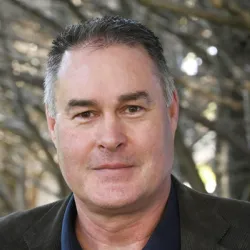
Paul Macpherson
Director of information security (CISO)
Reserve Bank of New Zealand
Paul Macpherson leads the Information Security team for Te Pūtea Matua, with responsibility for managing information and cyber security risks across the organisation.
The Information Security team plays a critical role in ensuring the security and privacy of information entrusted to Te Pūtea Matua as kaitiaki of New Zealand’s financial system.
Paul has over 30 years’ experience in information security administration, consulting and management roles across the public and private sector. Previously he held information security management roles at Westpac NZ and Xero, and spent 10 years with KPMG where he provided information security consulting and audit services to clients globally. He is a Certified Information Systems Security Professional (CISSP) and Certified Cloud Security Professional (CCSP).

Constantinos Christoforides
Lead cyber resilience expert
ECB
Constantinos is a Senior Oversight Expert focusing on cyber resilience activities for European FMIs. He is currently a Test Manager for TIBER-EU and is heavily engaged in the further development and evolution of the framework as well as assisting new jurisdictions in adopting and implementing the framework. Constantinos is also involved in the operationalisation and further development of the Cyber Incident and Information Sharing Initiative (CIISI-EU) and in further initiatives to raise the cyber resilience of European FMIs under the Euro Cyber Resilience Board (ECRB). Constantinos also participates in various international cyber groups, including workstreams of the G7 Cyber Expert Group and the CPMI-IOSCO Working Group on Cyber Resilience, as well as World Bank FIGI events, and conducts training for European and International supervisors/overseers on the Eurosystem Cyber Resilience Oversight Expectations. Prior to his Oversight role, he was part of the team monitoring the risks and enhancing the cyber resilience posture of TARGET Services, one of the most critical financial infrastructures in the world. Before joining the ECB in 2017, Constantinos worked at the Central Bank of Cyprus for 6 years, where he was the Bank’s Information Systems Security Officer, leading cyber resilience efforts within the Bank as well as assisting in bank supervision, bank resolution and eDiscovery missions during the financial crisis in Cyprus. Constantinos is a CISSP, CRISC, CISA and CDPSE, and has previously worked at KPMG, Ernst & Young and JCC Payment Systems. He holds a BSc in Mathematics from Warwick University and an MSc in Information Security from the University of Royal Holloway.

Stuart Sperry
Associate director
Federal Reserve Board
Stuart has over 30 years of management and analytical experience in the Federal Reserve System.
*1999-present -- Staff and management positions in the Federal Reserve System Board of Governors' Division of Reserve Bank Operations and Payment Systems. Functional areas have included Federal Reserve Bank financial management oversight, Federal Reserve Bank HR oversight, financial market infrastructure oversight, and Federal Reserve System IT oversight and policy (current).
*1991-1999 -- Staff and management positions at the Federal Reserve Bank of Kansas City's Oklahoma City Branch. Functional areas included HR, facilities management, procurement, and financial management.

Simon Onyons
Managing director
FTI Consulting
Simon Onyons brings over two decades of information technology and cybersecurity experience, most recently in the area of finance regulation. He currently serves as a senior advisor to the UK National Cyber Security Centre (NCSC), where he works on the NCSC Advisory Group to support the NCSC Industry 100 initiative to improve cyber resilience across UK industry and will remain in this role while at FTI Consulting.
Prior to FTI Consulting, Mr. Onyons was a Senior Vice President and Head of EMEA Governance, Risk and Compliance within Global Information Security at Bank of America. While at Bank of America, he created and co-led the award-winning Financial Sector Cyber Collaboration Centre (FSCCC) and served as Chair of the Cyber Security Working Group of the Association for Financial Markets in Europe.
Before that, Mr. Onyons worked in cybersecurity at the Financial Conduct Authority (FCA), where he was tasked with defining and implementing the strategy, policy, and structure of the FCA’s cyber supervisory division. Whilst at the FCA, he worked across a range of international working groups and collaboration efforts with global regulators and co-authored best practice cyber resilience guidance for the G7 Cyber Experts Group, the Committee on Payments and Market Infrastructures (CPMI), and the International Organization of Securities Commissions (IOSCO).
Previously, Mr. Onyons worked in business continuity and recovery for a number of IT service providers after beginning his career at IBM.

Faisal Sarwar
Deputy director finance department
State Bank of Pakistan
Faisal Sarwar is currently working with State Bank of Pakistan as a Deputy Director-Finance department. He is expertise in the area of Treasury Market (Money, Foreign & Bond/Fixed Income), Finance and Gold Market. He manages risk against these markets. Mr. Faisal has an experience of over 14 years working in different segments of the financial sector of Pakistan including Commercial banks, Financial Institution and the Central Bank.

Sukhvir Notra
Senior information security specialist
Bank for International Settlements
Mr. Sukhvir Notra is a Senior Information Security Specialist at the Bank for International Settlements (BIS). He has been an information security professional for over 10 years with majority of his career focused on defensive cyber operations. At the Cyber Resilience Coordination Centre (BIS), Sukhvir is responsible for development and delivery of cyber range exercises, managing cyber resilience assessments of central banks and other projects aimed at strengthening cyber resilience and promoting collaboration in the central bank community. His primary interest include leadership, operations, information security readiness and risk management. He has a Bachelors of Electrical Engineering degree and a Masters of Cyber Security from University of New South Wales.

Leo Gosland
Senior manager - advanced analytics
FCA
Driving the application of data science, machine learning and artificial intelligence within the FCA.
Over 20 years of hands-on technical and commercial experience, leading the delivery of analytics and technology programmes in the financial services industry across the UK, Europe and Asia.

Brian Gattoni
Assistant Director
Federal Reserve Board
Brian Gattoni is an Assistant Director in the Federal Reserve Board’s division of Reserve Bank Operations and Payment Systems with responsibilities to ensure the cybersecurity and resilience of Federal Reserve System Information Technology supporting Federal Reserve banks and payment systems. Gattoni is building partnerships and processes that ensure cybersecurity and resilience decisions are risk informed, mission focused, and account for the latest developments in threats and technology.
Prior to joining the Board in January of 2023, Gattoni was the Chief Technology Officer for the Cybersecurity and Infrastructure Security Agency (CISA), where he was responsible for the technical vision and strategic alignment of CISA data and mission services to manage cyber and physical risk to federal networks and critical infrastructure. He led a portfolio of research and development efforts in bringing emerging technologies to use in CISA’s mission including Artificial Intelligence, Zero-Trust, Cyber Deception, Digital Twins, Counter Explosives Robotics and Automated Decision Support systems. Gattoni is a Board Member for the National Institute for Standards and Technology Information Security and Privacy Advisory Board.
Gattoni holds a Master of Science in Cyber Systems and Operations with certifications in Cyber Wargaming and Cyber Operations Infrastructure from the Naval Postgraduate School in Monterey, California, and is a Certified Information Systems Security Professional.

Enrico Bernardini
Deputy head, climate change and sustainability hub
Banca d’Italia
Enrico Bernardini currently works at the Climate and Sustainability Hub of Banca d'Italia after almost twenty years at Financial Risk Management Directorate, Banca d'Italia. Some recent publications are 'The impact of carbon risk on stock returns: Evidence from the European electric utilities' and 'Mind the gap: Machine Learning, ESG metrics and portfolio construction'. Research interests are in sustainable investments, ESG data and integration into portfolio management, climate risk assessment.
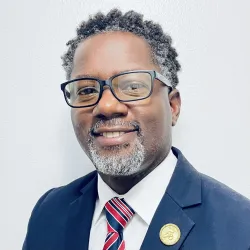
Kimwood M Mott
Project Manager for digital currency implementation
Central Bank of Bahamas
Kimwood Mott has spent over 30 years in the banking and finance industry in both the retail and private banking sectors. He has an extensive background and experience in banking, information technology, and project management. As the project manager for digital currency implementation, Kimwood is tasked with improving the domestic digital payments space and driving the national adoption of the Sand Dollar digital currency.
In addition to a wealth of knowledge and skills, Kimwood brings a unique perspective to the Sand Dollar project. As a small business owner, he recognizes the difficulties of our financial landscape and sees the potential and benefits of the Sand Dollar digital currency.
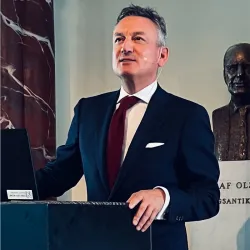
Jürgen Schaaf
Advisor, market infrastructure and payments
European Central Bank
Jürgen Schaaf is advisor to the Senior Management of the Market Infrastructure and payments business area of the ECB.
Before he was Counsellor to the Executive Board of the ECB. Until Jan 2014 he was also Secretary of the Single Supervisory Mechanism (SSM) Project Team.
Before he joined the ECB, he was Personal Adviser to the Governor of Banque centrale du Luxembourg (BCL).
In previous occupations he worked as ECB watcher at Börsen-Zeitung and Senior Economist at Deutsche Bank.
Dr. Schaaf studied economics in Marburg and Canterbury (University of Kent) and holds a Ph.D. in Economics from Phillips University Marburg.

Hakan Eroglu
Advisor
Bank for International Settlements
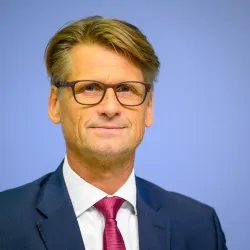
Per Nymand-Andersen
Emeritus adviser
European Central Bank
Per Nymand-Andersen has over 25 years of Central Banking Experiences and was part of creating and developing the European Central Bank from scratch. Per has developed his expertise in banking and financial markets, fintech, data science, communications, securities settlement systems, statistics and Management.
Per holds several Fintech/data science Advisor Board positions in private and simi-public organisations. Per is a Lecture at Goethe-Universität Frankfurt and is a frequent speaker at international events and author of several publications/articles regarding financial markets, data science, communication and statistics. His recent renown book “Data science in Economics and Finance for Decision Makers” was published by Riskbooks.com.
Prior to joining the ECB, he provided market research consultancy services for the European Commission, Luxembourg.
Per has an MBA in Economics and Management Science from Copenhagen Business School, Denmark and has a Fintech certificate from Harvard University.
Per speaks four languages (English, German, French and Danish).
Further details: https://www.linkedin.com/in/per-nymand-andersen-81609913

Stefan Ingves
Former governor
Sveriges Riksbank
Stefan Ingves served as the governor of Sveriges Riksbank, from 2006 to 2022. He was chairman of the Basel Committee on Banking Supervision from 2011–19. Since November 2021, he has served as the vice-chairman of the Bank for International Settlements where he has chaired its Banking and Risk Management Committee since 2007. Ingves served as chairman of the Advisory Technical Committee of the European Systemic Risk Board between 2011 and 2017, and was first vice-chair of the ESRB from 2021. From 1999–2005, Ingves was director of the monetary and financial systems department at the International Monetary Fund and worked as deputy governor of the Riksbank from 1994–98, after a year working as director-general of the Swedish Bank Support Authority. From 1988–92, he was a member of the board of the Swedish National Debt Office, the Stockholm Stock Exchange and Värdepapperscentralen, as well as under-secretary for financial markets and institutions at the Swedish Ministry of Finance. Ingves has also worked in banking as assistant vice-president in the central finance and fund management division at Svenska Handelsbanken between 1984 and 1986, and was president of Sofe, Sweden’s Options and Futures Exchange in 1987. He has a PhD in economics and was a lecturer at the Stockholm School of Economics between 1976 and 1984.

Eva Murciano
Director general human resources
European Central Bank
Eva is a creative and insightful leader with a diverse background of experiences in HR matters. During her more than 20 years at the European Central Bank she has been exposed to different HR roles and organisational challenges working with and learning from numerous stakeholders both within the European System of Central Banks and International Financial Institutions. During her career at the ECB Eva established the Learning and Development function, increased the impact of the HR Business Partners for leaders, led the Diversity and Inclusion strategy and the transformation of the HR function. As Director General Human Resources Eva is leading the ECB’s people and culture strategy dealing with the challenges and opportunities arising from the transformation of a new way of working and leading within the Bank.
Passionate for people, organisations and continuous development, Eva is a change agent and believes in continuous transformation as the enabler to achieve sustainable business impact in an ever changing and complex environment.
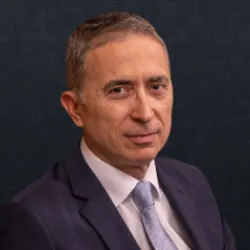
Mugur Tolici
Director, human resources department
National Bank of Romania
Economist by education, central banker by heart. Throughout his 25+ year career in central banking, Mugur Tolici has held numerous roles in both core and enabling functions within the National Bank of Romania, ranging from head of monetary policy division, adviser to the deputy governor, head of the governor's office, deputy director of cash department and his most recent tenure as HR director. In this role, he has successfully lead one of the most transformational projects of the bank, implementing a new people management system aligned to international best practices and centered on bringing to the forefront NBR’s values: integrity, commitment, performance and cooperation. His career also includes international experiences, most recently the International Monetary Fund in Washington DC, serving as a Senior Adviser for the Executive Director (Dutch-Belgium Constituency).
Passionate for teaching, he also has a rich academic experience as lecturer at the Bucharest University of Economic Studies and National University of Political Studies and Public Administration.

Joel Gujral
Founder & CEO
MYNDUP
Joel Gujral is 31 years old and the Founder & CEO of a mental health company MYNDUP. Joel founded the company in April 2019 after his own mental health battle due to an undiagnosed gut condition and he struggled to access support when working at a global finance company that offered counselling. He then set up MYNDUP to stop the one size fits all approach to mental health and also change the way organisations were dealing with this by removing all barriers to care.
Joel bootstrapped the company with £105 and then subsequently raised £5m. MYNDUP is now servicing employees in 50 countries with brands like Monzo, Dentons, Savills, CVC & The Princes Trust.
Joel has won several awards during his entrepreneurial journey including:
- Winner of the Barclays Start-up Entrepreneur of the Year Award
- Winner of the London Stock Exchange Group Entrepreneurship Programme
- Top 100 Asian Stars in UK Tech 2023 listed as a top 5 UK startup
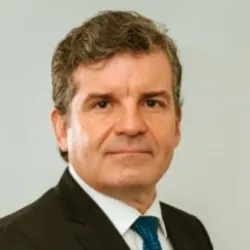
José Luiz Barros Fernandes
Head of risk
Central Bank of Brazil
José graduated in Civil Engineering from Universidade Federal de Pernambuco (1998), an MSc from the Universidade de Brasilia (2002) and doctorate in Business Administration and Quantitative Methods - Universidad Carlos III de Madrid (2007). He is a FRM (Financial Risk Manager) certified by GARP - Global Association of Risk Professionals and is currently Head of the Risk Department at the Central Bank of Brazil. His line of research is related to the strategic asset allocation, portfolio optimization, risk management and behavioral finance. José has published several papers in internationally recognized journals such as: Journal of Banking and Finance, International Journal of Finance and Economics, Applied Financial Economics, European Journal of Finance and Journal of Risk Management in Financial Institutions.
Course Chairs
Central Banking's authoritative, independent, and engaging chairs shape course agendas, lead workshops and steer debate
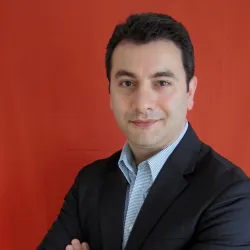
Atilla Arda
Senior financial sector expert
International Monetary Fund
Atilla Arda is a Senior Financial Sector Expert in the International Monetary Fund’s (IMF) Monetary and Capital Markets Department; prior to this, he was a Senior Counsel in the IMF’s Financial & Fiscal Law Unit. Mr. Arda joined the IMF in February 2007 from the central bank of the Netherlands where he held a Senior Counsel position and was Substitute Secretary to the Board; he also contributed to the workings of the Legal Committee of the European System of Central Banks. Mr. Arda has consulted for over 70 countries, half of which on-site, including for countries as diverse as Egypt, Greece, Indonesia, Ireland, Jamaica, Kosovo, Myanmar, Portugal, Sri Lanka, and Ukraine. Most recently, he was the deputy head for the Switzerland Financial Sector Assessment Program (FSAP), and he led the FSAP crisis readiness teams for the United Kingdom, United States, and euro area. Mr. Arda is specialized in central bank governance and law, financial law, institutional frameworks for macroprudential policy and crisis management, financial safety net arrangements, crisis preparedness, and bank resolution regimes. Mr. Arda undertook his undergraduate at the Amsterdam Academy of Banking and Finance; he is a graduate of both the Amsterdam Law School and the Amsterdam Graduate School of Law of the University of Amsterdam, where he specialized in international economic and financial law. He is a regular speaker at international conferences and has been chairing Central Banking Publications’ course on ‘Central Bank Governance and Legal Risks’ since 2014.

Chair: Janet Cosier
Former advisor on strategic planning and risk management
Former Bank of Canada
Janet Cosier is the former Chief Risk Officer and Adviser on Strategic Planning at the Bank of Canada. She continues in her capacity as the Chair of the Board of Directors of the Canadian Payments Association. She has served in a variety of functions including comptroller and chief accountant, as well as chief internal auditor, before being appointed adviser to the governor. She has provided technical assistance to various central banks in the areas of strategic planning, risk management, governance and financial reporting. Before joining the Bank of Canada, she worked with the Office of the Auditor General of Canada and with the Department of Industry, Trade and Commerce. Mrs Cosier holds degrees from York University and the University of Windsor in mathematics, computer science, accounting and financial management.
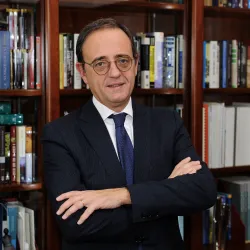
Pedro Duarte Neves
Former vice-governor
Bank of Portugal
Pedro Duarte Neves is Adviser for the Board of Directors of Banco de Portugal. He was Vice-Governor of Banco de Portugal from June 2006 to September 2017. Pedro Duarte Neves participated at the main high-level supervisory and regulatory fora like the EBA, SSM, ESRB, and FSB. He was Alternate Chairperson of the EBA from July 2013 to June 2018 and he has chaired a number of committees in the scope of the FSB, EBA, and the Joint Committee of the ESAs. His research interests include banking supervision and regulation, macro-prudential policy, and the real economy.
Pedro Duarte Neves is a Visiting Professor at Católica Lisbon School of Business and Economics. He is also Associate at the Systemic Risk Centre, London School of Economics. Pedro Duarte Neves holds a PhD in Economics from Université Catholique de Louvain. He published in scientific journals like The Journal of Econometrics, Economics Letters and Economic Modelling.

Richard Heckinger
Former vice-president and senior policy adviser
Federal Reserve Bank of Chicago
Richard Heckinger was formerly vice president and senior policy advisor, Financial Markets Group, at the Federal Reserve Bank of Chicago. He started his career in financial markets at the Chicago Board Options Exchange in 1973. His career has included executive management of financial market operations and risk. He has a wide range of international experience including positions in Montreal, London, Hong Kong, Boston and Chicago. He has served on international committees, including a Federal Reserve Bank of New York working group, the OTC Derivatives Regulators’ Forum, SWIFT, and the International Securities Services Association. He has a MPhil degree in economics from the London School of Economics, a BA degree in mathematics from the Illinois State University, and completed the Advanced Management Course at the University of Chicago.
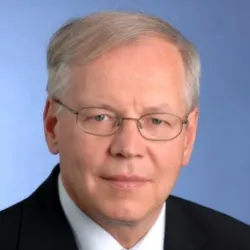
Antti Heinonen
Chairman
Banknote Ethics Initiative
Antti Heinonen has been the chairman of Banknote Ethics Initiative since its inception in 2013. He was the chairman of the Central Bank Counterfeit Deterrence Group between 2008 and 2012 and the Director, Banknotes at the ECB from 1998 until 2008. He chaired the Banknote Committee of the European System of Central Banks for more than 10 years and the Eurosystem Cash Changeover Co-ordination Committee in 2001 and 2002. Prior to joining the ECB he was the chief cashier for the Bank of Finland. He holds degrees in economics and mathematics from the University of Helsinki, and has recently written two books, one on the history of Finland’s markka banknotes, and another on euro banknotes. The latter is also translated in English (The First Euros) and German (Die Ersten Euros).

Raymond Kleijmeer
Chair
Former Central Bank of the Netherlands
Raymond Kleijmeer works at APG Asset Management on the implementation of the Digital Operational Resilience Act. Until May 2024 he worked at De Nederlandsche Bank (DNB), the central bank and financial prudential supervisor of the Netherlands. DNB seeks to safeguard financial stability and enhance the resiliency of financial institutions and the financial system as a whole. Raymond was involved in international working groups hosted by the Bank for International Settlements (BIS) publishing among others, the CPMI-IOSCO guidance on cyber resilience for financial market infrastructures in June 2016 and the Financial Stability Board Cyber Incident Response and Recovery toolkit published in 2020. At a national level he worked on the initiation and implementation of the Threat Intelligence Based Ethical Red teaming (TIBER) framework in the Netherlands from 2015 until 2019, when he was seconded to the BIS Financial Stability Institute to publish an FSI Insight on international red team testing frameworks. At the BIS Cyber Resilience Coordination Centre Raymond was seconded from 2020-2022 to establish a program for central banks to perform cyber resilience assessments on critical business services with methodology developed by Carnegie Mellon University.

Klaus Löber
Chair, CCP supervisory committee
European Securities and Markets Authority (ESMA)
Klaus Löber is the Chair of the CCP Supervisory Committee (CCP SC) in ESMA, which was established in 2020. His areas of responsibility encompass the tasks attributed by the European Market Infrastructure Regulation (EMIR) to the CCP SC, in particular the enhanced supervisory convergence towards EU CCPs and ensuring a resilient CCP landscape in the EU as well the monitoring and supervision of CCPs established in third countries in view of the risks that they may pose to the EU financial system. He is also chairing the ESMA CCP Policy Committee contributing to the EU Single Rule Book in the area of CCPs.
Prior to this role, Mr Löber was the Head of the Oversight Division of the European Central Bank in charge of the oversight of financial market infrastructures, payments instruments and schemes. Earlier positions include the Head of the Secretariat of the Committee on Payments and Market Infrastructures, the global standard setting body in the area of payments, clearing and settlement as well as positions in the European Commission, Deutsche Bundesbank and private practice.
Mr Löber regularly publishes on financial markets legal, regulatory and infrastructure issues and lectures at universities.

Maria Nieto
London School of Economics
Visiting senior fellow
María J. Nieto (PhD) is a Visiting Senior Fellow at the London School of Economics (Grantham Research Institute), Member of EBI and former Senior Advisor at Bank of Spain. She is author of numerous peer-reviewed articles (Journal of Banking and Finance, Journal of Financial Stability, Journal of International Financial Markets, Institutions and Money among others). She has cooperated as advisor with the International Monetary Fund and the Federal Reserve Bank of Atlanta for over 10 years and she serves on the advisory boards of the Journal of Financial Regulation and Compliance, the Journal of Financial Regulation, the Central Banking Training Advisory Board (UK) and the Institute of International Monetary Economics (UK). She has a PhD from University Complutense de Madrid, an MBA in finance from the University of California, Los Angeles (UCLA), and is a Certified Public Accountant (CPA)
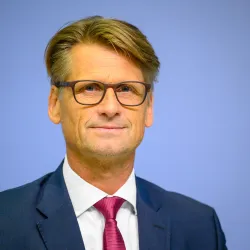
Per Nymand-Andersen
Emeritus adviser
European Central Bank
|
Per Nymand-Andersen has over 25 years of Central Banking Experiences and was part of creating and developing the European Central Bank from scratch. Per has developed his expertise in banking and financial markets, fintech, data science, communications, securities settlement systems, statistics and Management. Per holds several Fintech/data science Advisor Board positions in private and simi-public organisations. Per is a Lecture at Goethe-Universität Frankfurt and is a frequent speaker at international events and author of several publications/articles regarding financial markets, data science, communication and statistics. His recent renown book “Data science in Economics and Finance for Decision Makers” was published by Riskbooks.com. Prior to joining the ECB, he provided market research consultancy services for the European Commission, Luxembourg. Per has an MBA in Economics and Management Science from Copenhagen Business School, Denmark and has a Fintech certificate from Harvard University. Per speaks four languages (English, German, French and Danish). Further details: https://www.linkedin.com/in/per-nymand-andersen-81609913 |
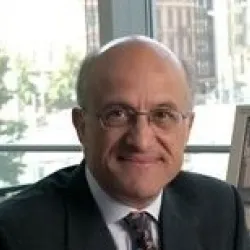
Francesco Papadia
former director general for market operations
European Central Bank
Francesco Papadia is chair of Prime Collateralised Securities, chair of the Selection Panel of the Hellenic Financial Stability Fund, resident fellow of Bruegel and lectures at various Universities. Between June 1998 and May 2012 he was director general for Market Operations at the European Central Bank. Before that he held different positions at Research Department and Foreign Department of Banca d'Italia. Between 1980 and 1983 he was economic advisor at the Directorate General for Economic and Financial Affairs of the European Commission. From 1974 to 1979 he served as economist in the Research Department of Banca d'Italia. Francesco Papadia holds a degree in Law from the University of Rome. He did his postgraduate studies in Economics at Istao, Ancona and at the London Business School. He has published numerous articles and books.

Marek Petruš
Central bank communications consultant and former director of the general secretariat
Former Czech National Bank
Marek Petruš is an external relations consultant with deep expertise in financial and economic policy communications. He has worked closely with top monetary policymakers as a strategic advisor to governors in the Czech Republic as well as more than a dozen low-to-middle income developing countries. He has been affiliated with the International Monetary Fund as a short-term expert for central bank communications, advising central banks across Eastern Europe, Asia, and Africa to make their policies more transparent and on modernising their communications. His expertise and experience stems from an assignment as Director of Communications and later chancellor at the Czech National Bank (CNB), preceded by a career with the world’s leading news media companies, including Reuters and the Wall Street Journal. During his tenure, the Czech central bank upgraded its policy communications and brought its transparency and communication toolkit into line with global best practices. These advances helped solidify the CNB’s standing as one of the world's most transparent and best communicating central banks.

Freyr Hermannsson
Former head of treasury
Former Central Bank of Iceland
Freyr Hermannsson is an experienced central banker and has worked with a dozen central banks and United Nations agencies since the turn of the century. He is an independent advisor focusing on sovereign asset and liability management, particularly balance sheet management and central bank policy solvency, reserve management and public debt management. He has hands-on knowledge of monetary and exchange operations, FX markets development, exchange rate regimes, FX regulations (incl. capital controls) and capital account liberalization, central banking recapitalization and related accounting issues.
Mr. Hermannsson initially joined the Central Bank of Iceland in 2000 and after several years in the private sector was drafted back into the central bank in Iceland’s 2008 financial crisis where he served as Head of Treasury. He led international reserves management, implemented central bank open market operations, negotiated government debt transactions, developed capital controls, and worked on crisis prevention and management during and after the crisis of 2008.
A mathematician by education, he holds a M.Sc. from Columbia University in Operation Research and a B.Sc. in Mathematics from the University of Gothenburg, Sweden. He has lectured on the mathematics and economics of financial markets as an Adjunct Lecturer at the Faculty of Economics of the University of Iceland.

Chair: Kenneth Sullivan
Director
Central bank consulting and former senior financial expert, International Monetary Fund
Kenneth Sullivan was until 2015 a senior financial sector expert with the International Monetary Fund. Previously, he spent seven years at the Reserve Bank of New Zealand as chief manager of both Accounting and Corporate Services where the bank won accounting prizes for the transparency of its published financial statements. Prior to that he provided a financial management information system consultancy, held senior accounting roles in insurance and wholesaling, and worked in education. Starting in 1993 he served as accounting expert on IMF missions, providing accounting technical assistance to central banks around the world, organized and presented at central bank accounting workshops and participated in Financial Sector Assessment Program and Safeguard Assessment

Chair: Andrea Clarke
Chief strategy officer
Bank of Jamaica
Mrs. Andrea Clarke, Chief Strategy Officer, Bank of Jamaica is a seasoned central banker with over thirty years’ experience working in both private and public sectors.
Andrea holds the position of Chief Strategy Officer tasked with the principal responsibility for leading Bank of Jamaica’s strategic planning and project management functions. Since her assignment to this role in 2019, she has been successful in formally developing the operations of the Strategic Planning and Project Management Centre, formalizing strategic planning and project management standards across the Bank, as well as currently leading several critical strategic projects to include Jamaica’s transition to the Twin Peaks financial regulatory model.
Amongst her accreditations are a Master of Business Administration Degree from the University of New Orleans; a Bachelor of Science Degree in Management Studies & Accounting from the University of the West Indies; Senior Certified Professional in Human Resources designation (SHRM-SCP); Balanced Scorecard Professional (BSP) designation from the Balanced Scorecard Institute, USA and the Project Management Professional (PMP) certification.

CHAIR: Andrew Richards
Senior manager, central banking operations
Bank of England
Andrew is an economics graduate with over 17 years' experience leading large operational teams in challenging and complex environments across the military, investment banking and central banking. Andrew gained a Queen's Commission as an officer in the British Army, ending his military career as an instructor in leadership at the Royal Military Academy Sandhurst. He has remained passionate about people and how we lead. After leading three teams across Morgan Stanley's collateral management function he went on to chair the Governor's Leadership Taskforce at the Bank of England. The taskforce made recommendations on The Bank's Leadership Commitment, identified a Leadership Curriculum and set the organisation's future strategy on leadership. At the Bank of England, Andrew is a Leadership Story coach and has broad responsibilities across Diversity, Equity and Inclusion.
Andrew is currently responsible for leading 55 people across 3 functions in the Central Banking Operations Division at the Bank of England, with additional responsibilities as the division's operational risk officer. During his military career, Andrew led and commanded team sizes ranging from 4 people to 30 people, and was second in command of (and at times assuming command of) an operational task force of 250 men and women.